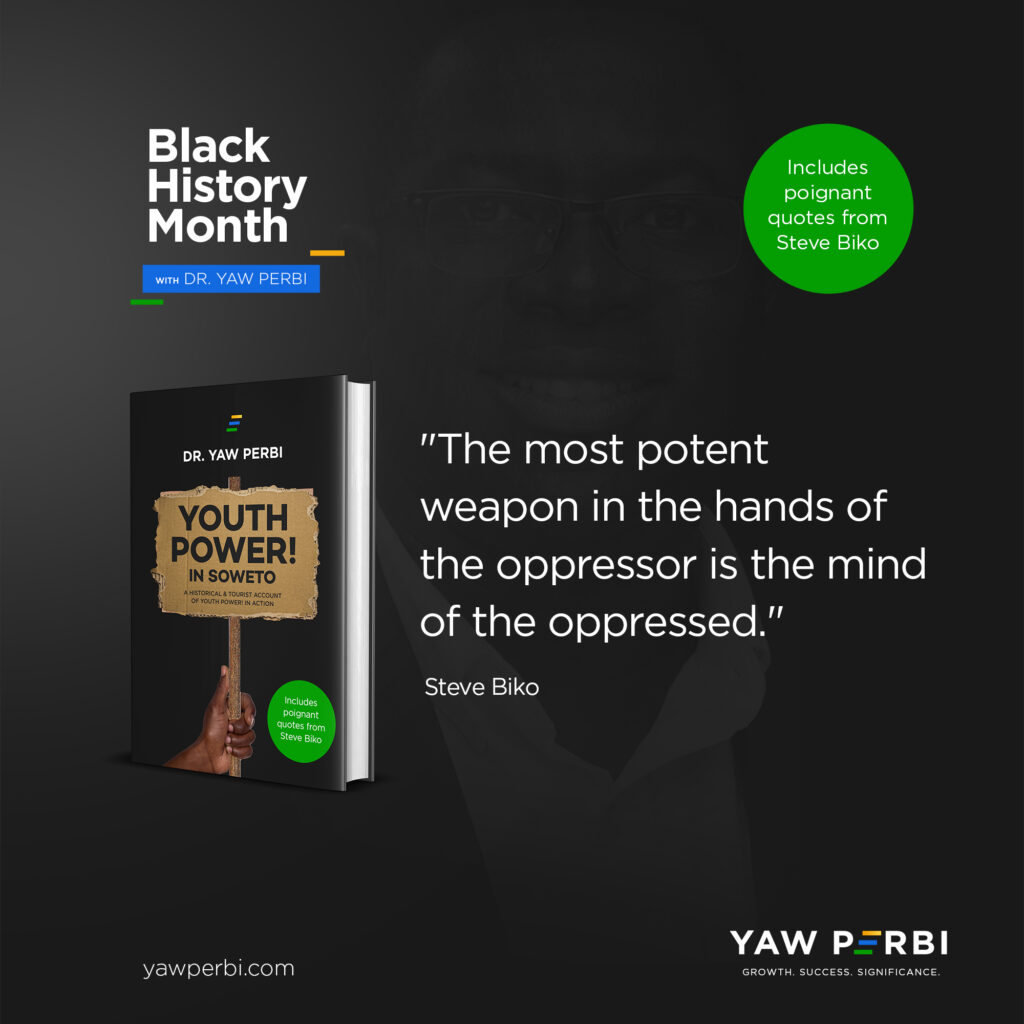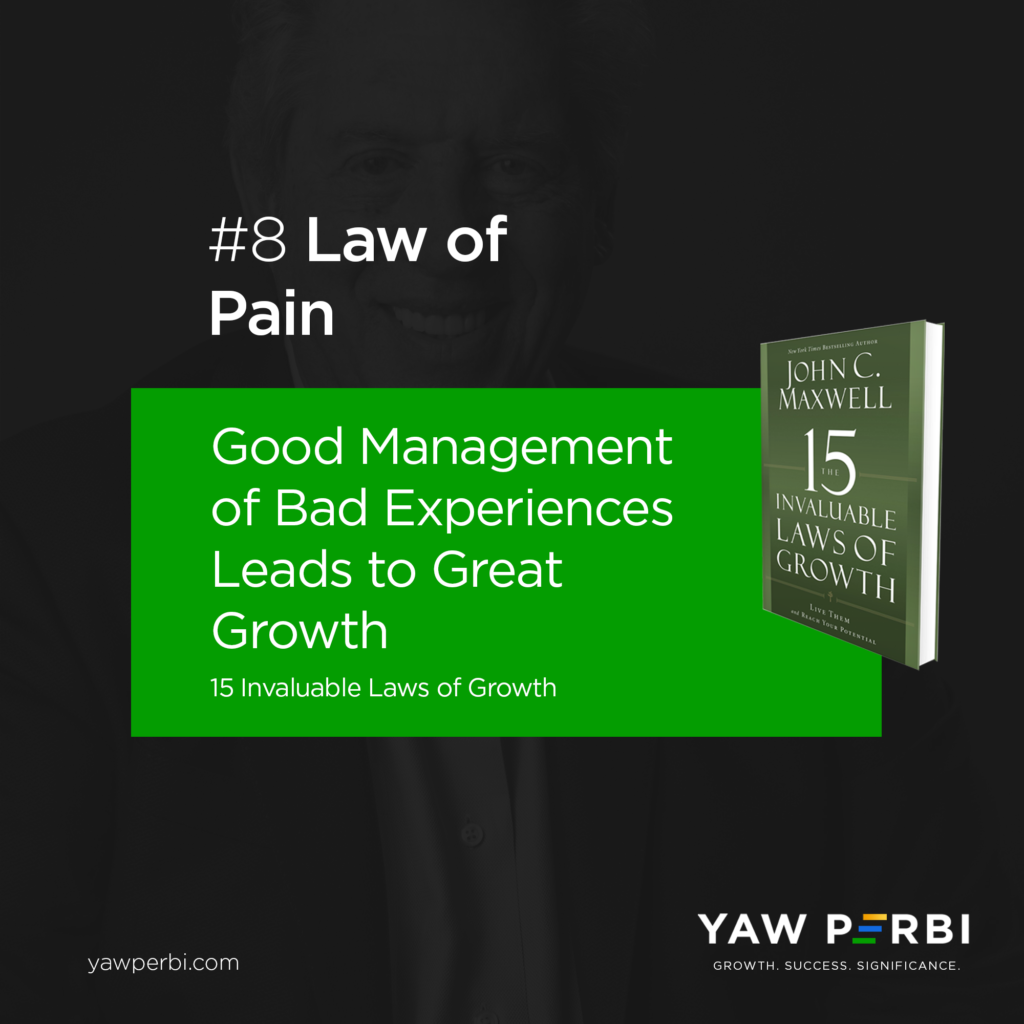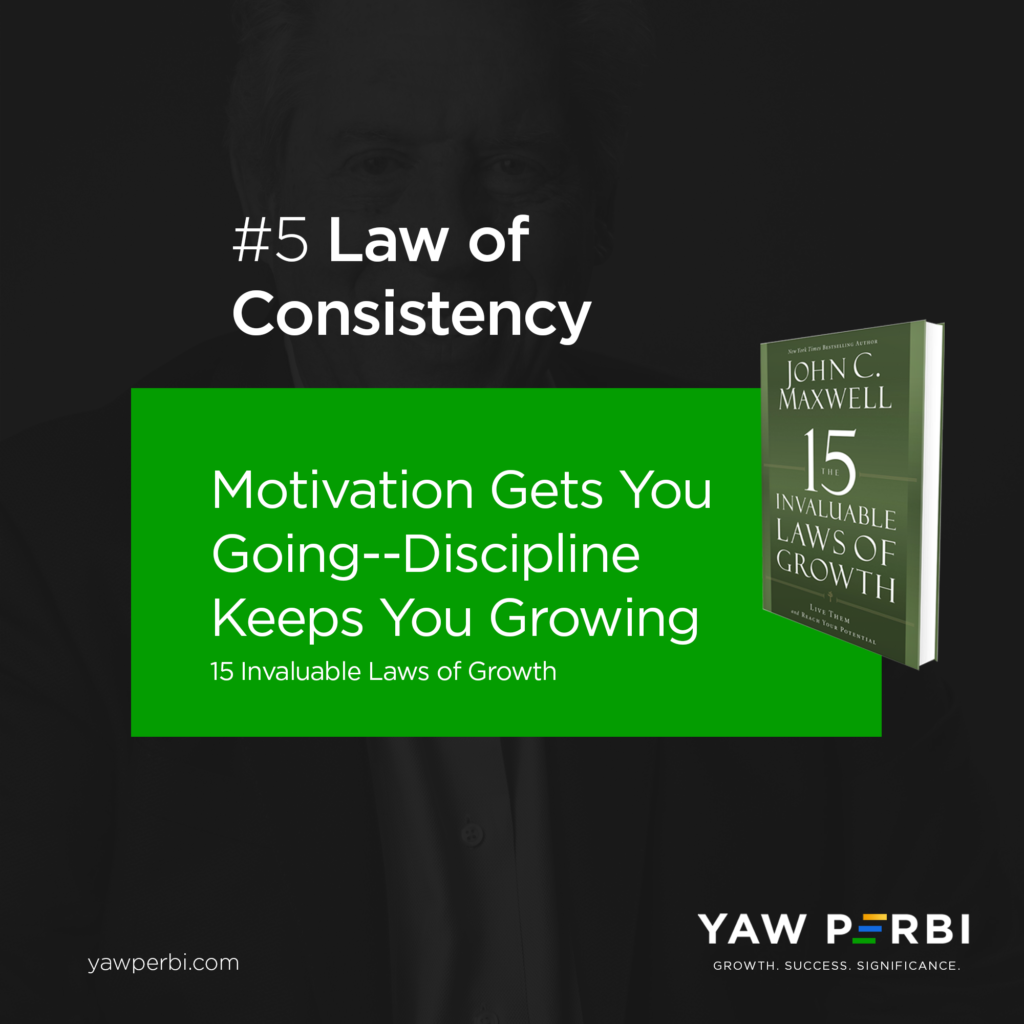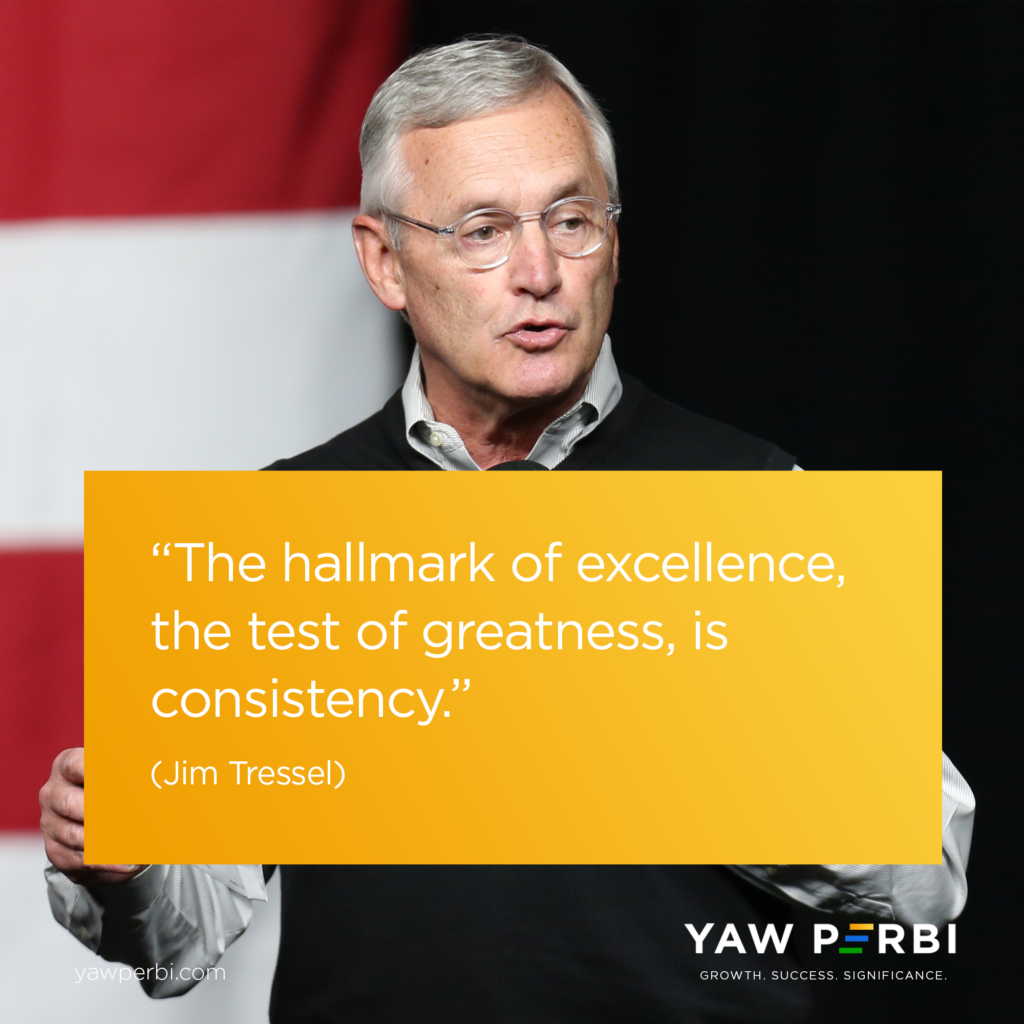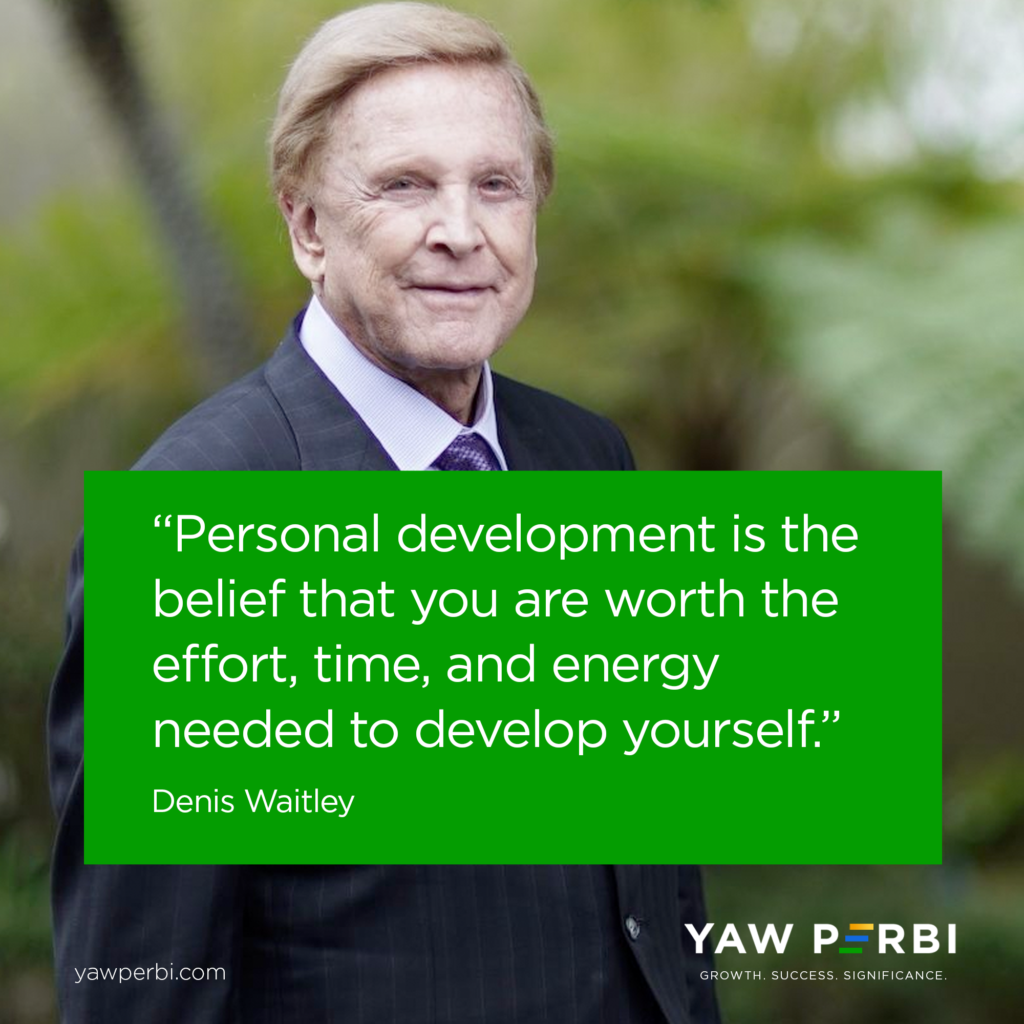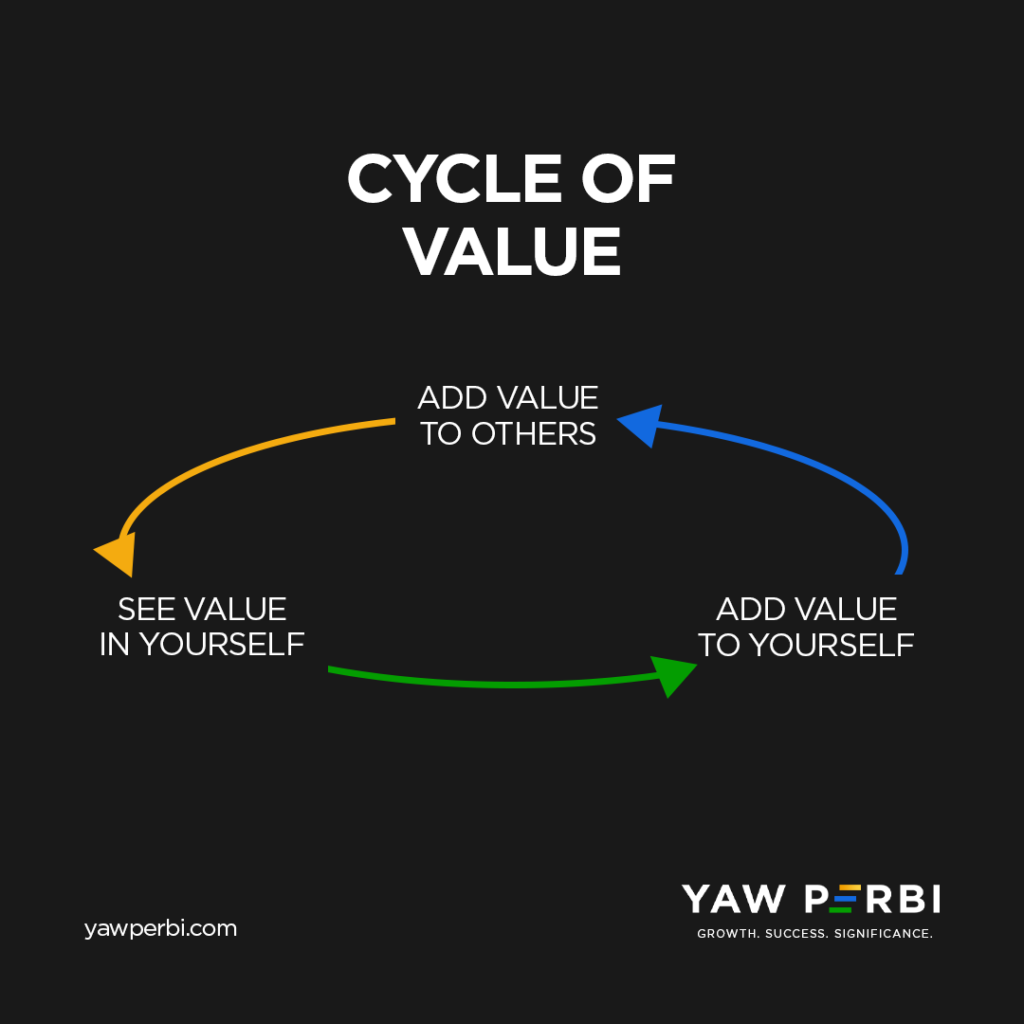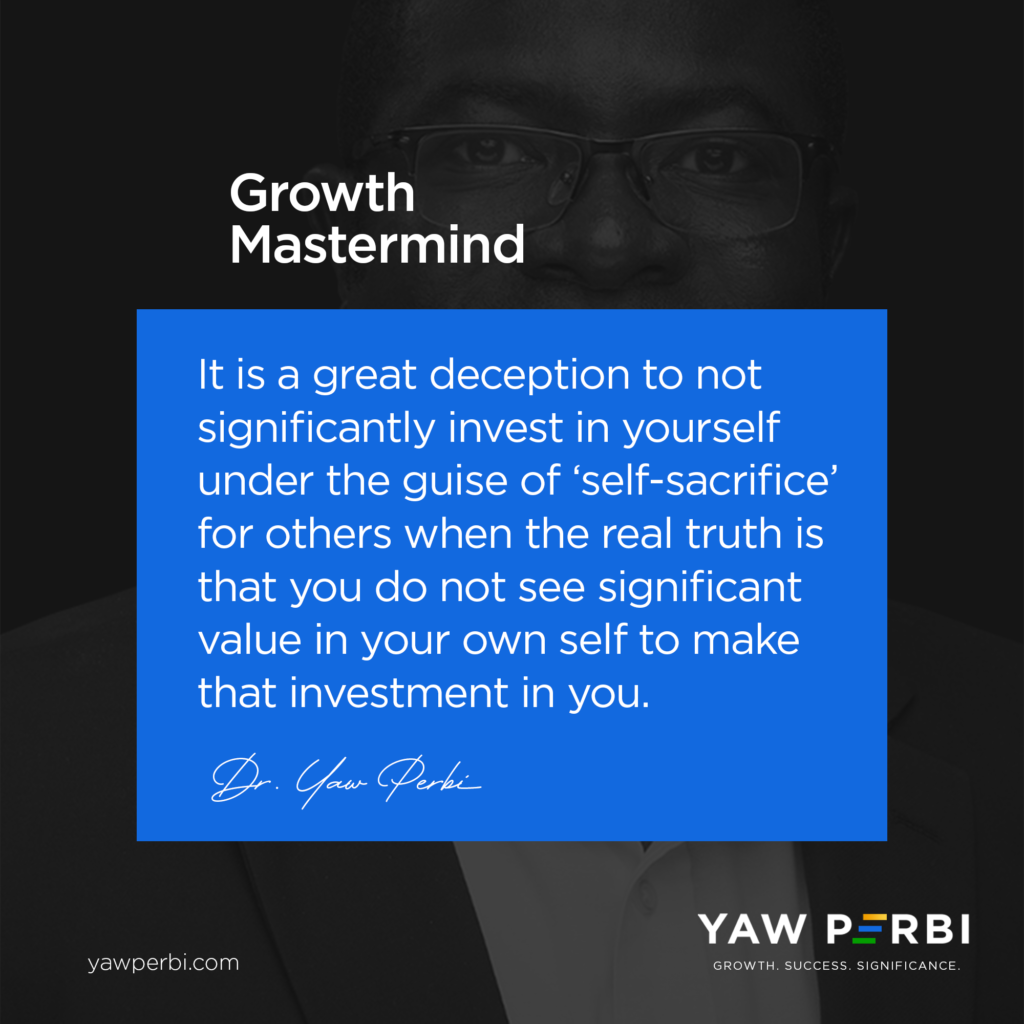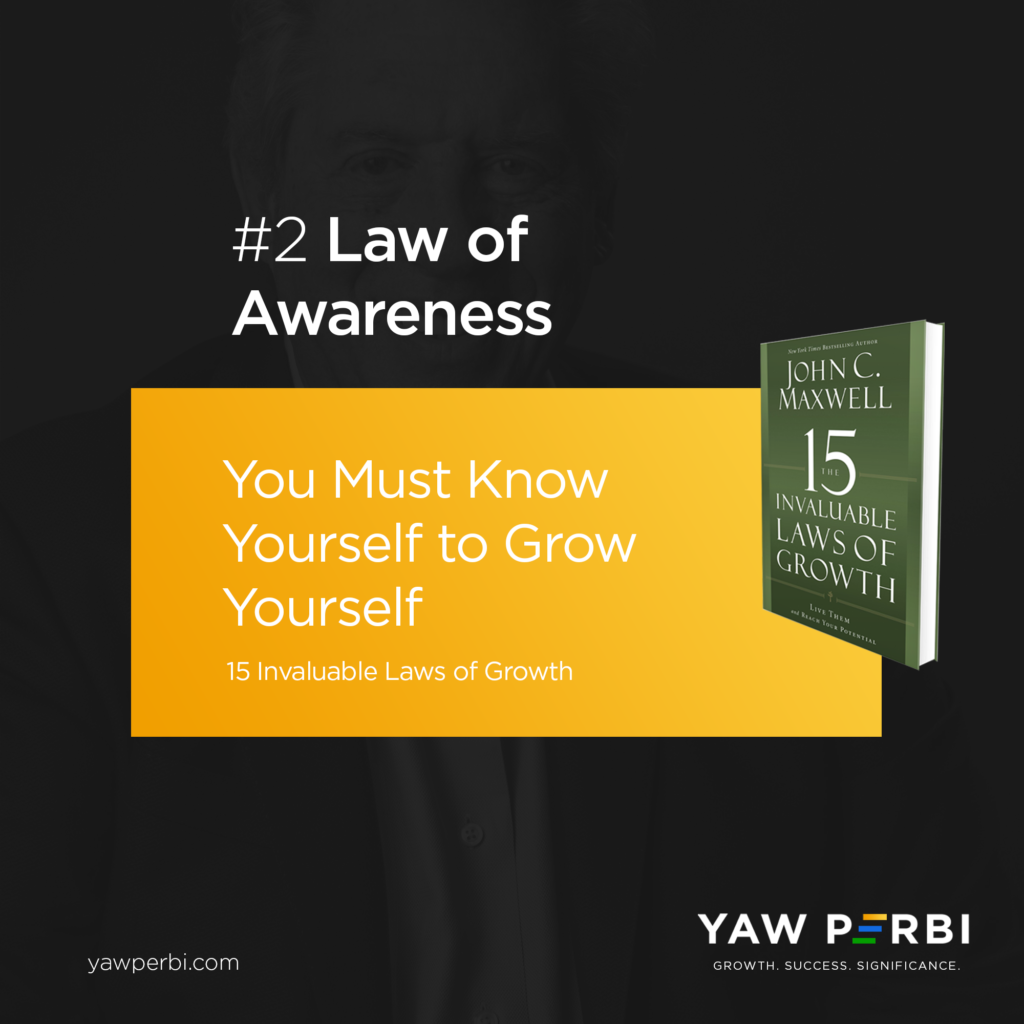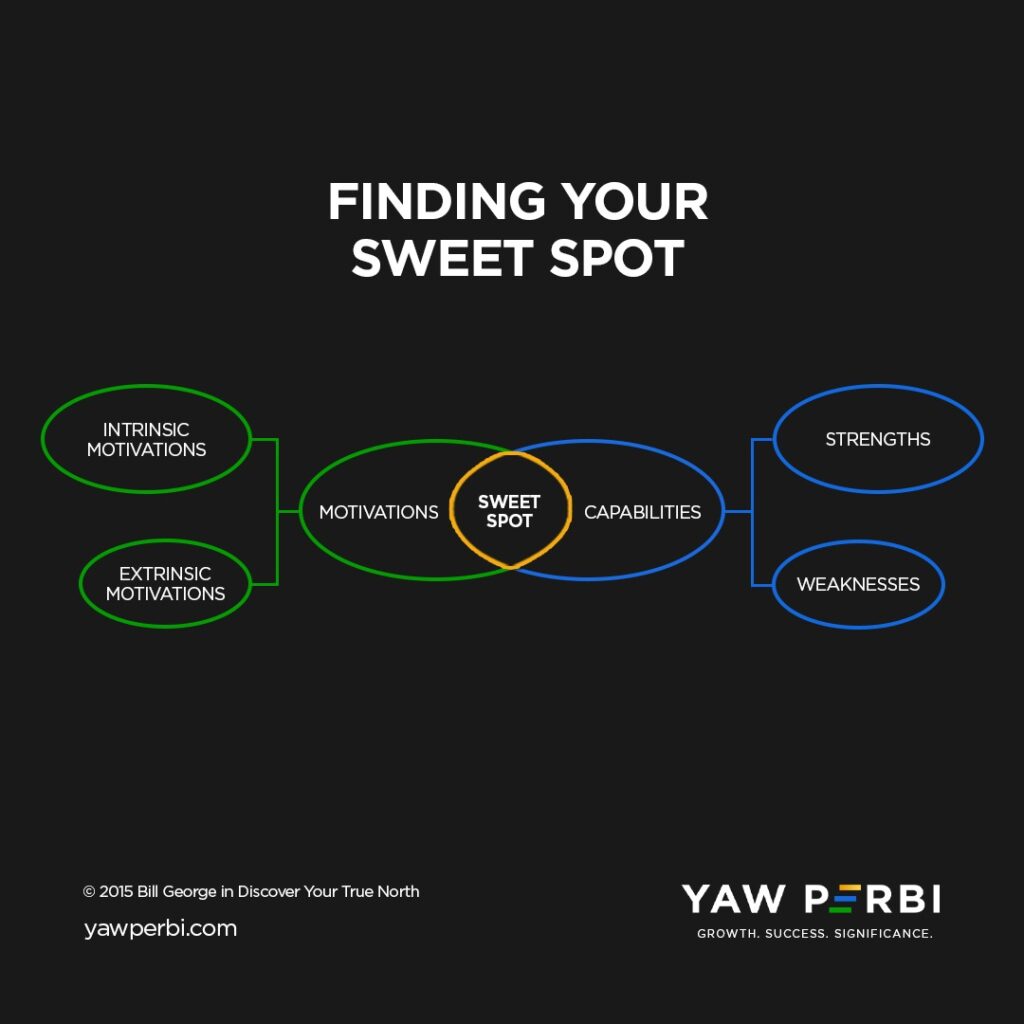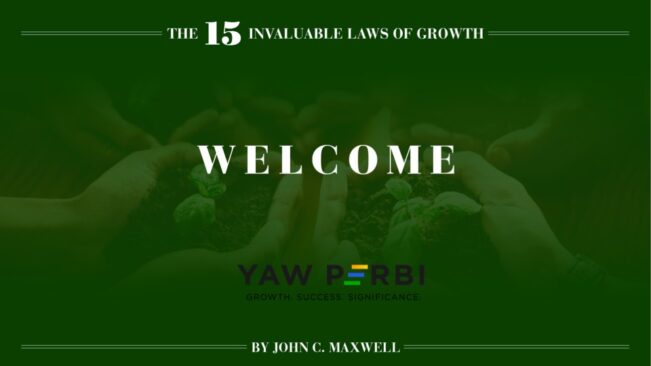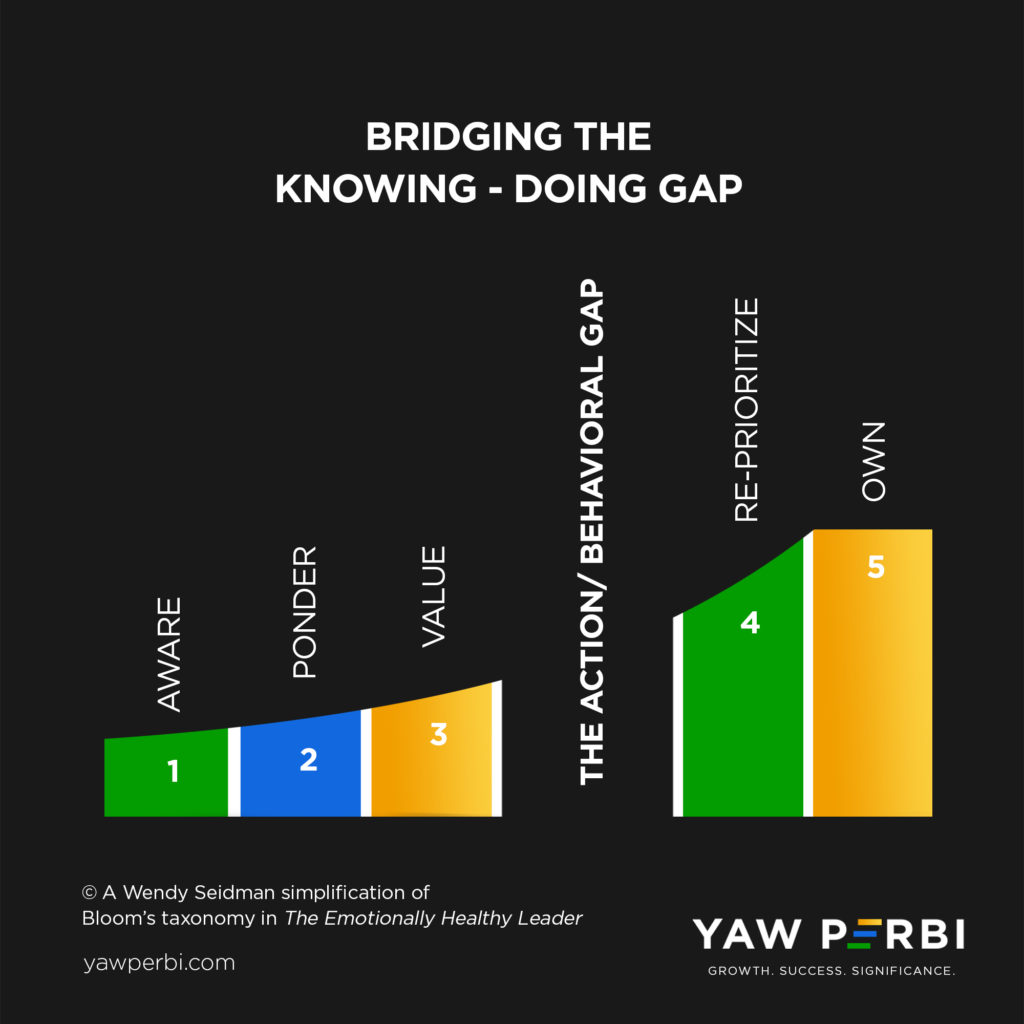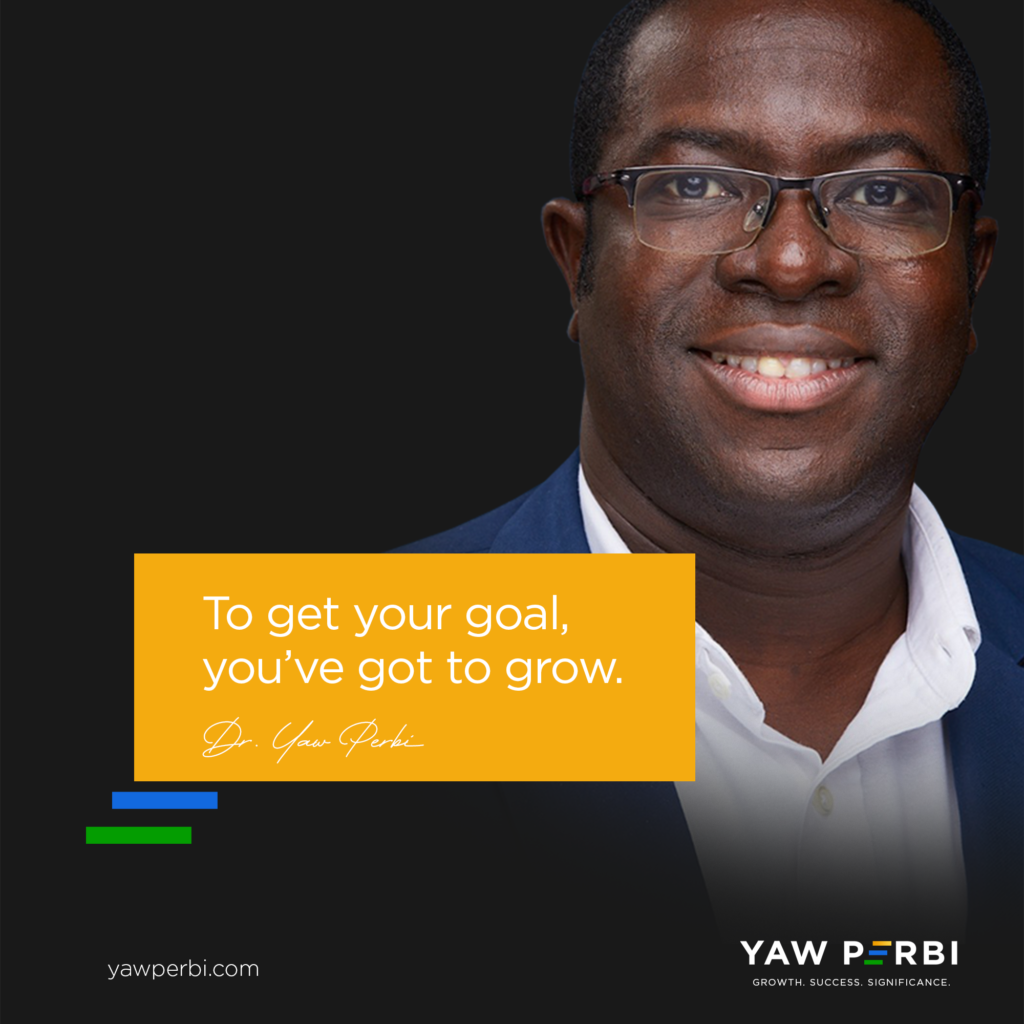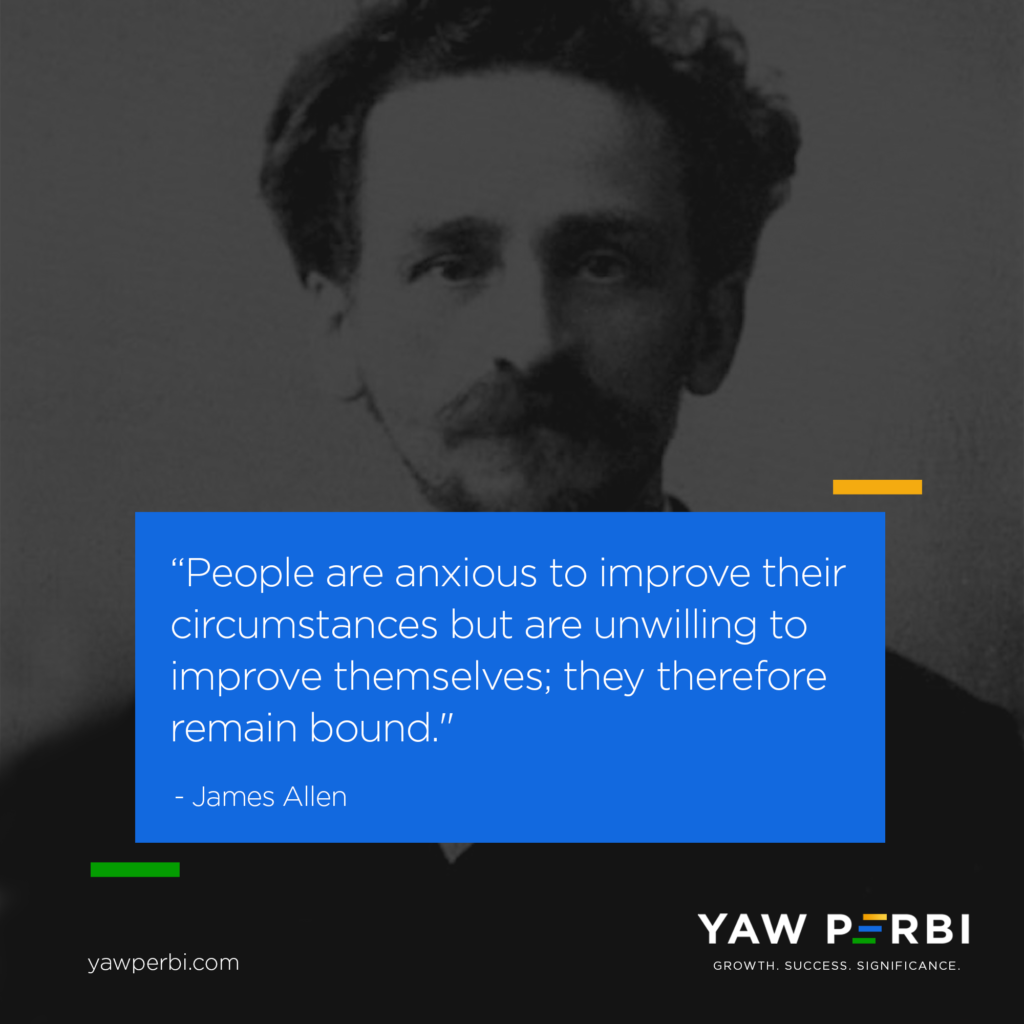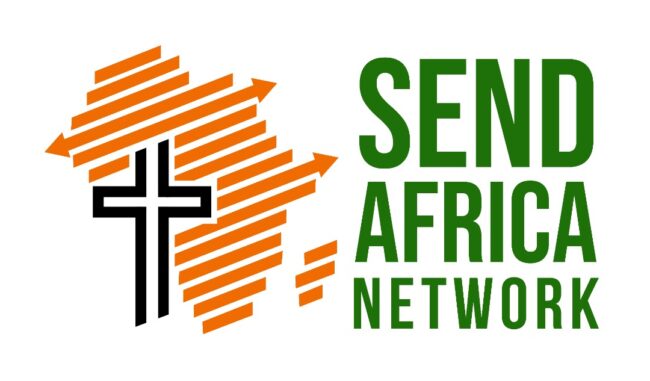
Black History Month | Africa Leads the World
There is no talk of Black History without faith, especially the Christian faith. PBS recently released a fascinating Henry Louis Gates Jr. documentary on the Black Church. What some dubious people tried to oppress and suppress black people with became the very thing that liberated us and is now giving us a global leading edge.
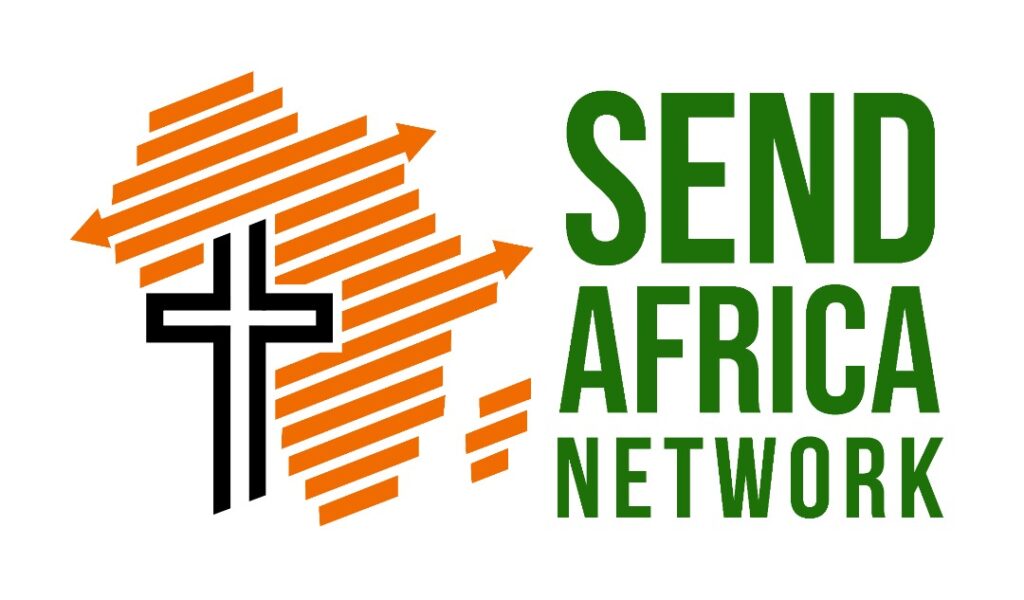
Send Africa is an evolving missions network whose DNA and launch YAW PERBI is privileged to help shape and midwife
Africa is the most Christian continent in the world today. The year 2018 was the first in history where there were more Christians in Africa than on any other continent in the entire world! (Johnson 2018) THIS IS A BIG DEAL!—this is a one-thousand year record held by Europe that has been broken by Africa in our lifetime. That makes me super excited about Black History Month this year because history is being made right now. As you read this, a number of continental Africans and those of African descent in the diaspora have synergized to birth a new network known as Send Africa to promote further faith formation among ‘unreached people groups’ around the world.
At the formal launch of this Send Africa Network online on February 24-25 during this 2021 Black History Month, my Kenyan friend, Sam Ngugi, and I will be launching a ground-breaking book entitled Africa to the Rest to celebrate this huge feat of Africa becoming a leading global force of faith to the rest of the world. This book is to “celebrate this momentous occasion in world history that has been inadequately highlighted by mainstream missions and missions. It traces some of God’s goodness to Africa in the Bible and throughout history until now to make clear that Africa and Africans have been central to God’s missional purposes; not an afterthought.” You may register for the Send Africa Summit here.
CAPTURED & DISTORTED HISTORY
Of course Africa features in the Bible from start to finish. There were actually two black guys (among the five) that played hands on the apostle Paul and commissioned him on his missionary journeys (Acts 13). Africa is the cradle of monasteries and ecumenicsm. The term Trinity came from Tertullian the Tunisian. St. Augustine was from Algeria, and not a European as we were made to believe growing up in Africa.
As Sam and I state in our book, “People consider Christianity as the white man’s religion to oppress the African due to the last 500 years of Euro-American missionary activity mixed with colonialism without realizing that the first 500 years A.D., Africa was so synonymous with Christianity that one of the most common terms for Christians in Arabic sources is afariqa–indicating a significant degree to which “Christian” and “African” were synonymous concepts (Merrills 2004, 303).”
In fact, the subtitle of our book is “from mission field to mission force (again)“ because Africa(ns) as a mission force first impacted Europe with the Gospel! That notion that Africa first evangelized Europe is the essence of Thomas Oden’s book titled How Africa Shaped the European Mind. “My core hypothesis,” Oden himself says, “is that much intellectual history flowed south to north: from Mumidia to Sicily to France and Italy. It flowed from the Nile to the Euphrates and the Danube. It flowed from Pelusium to Gaza to Cappadocia. …There is ample evidence available that the seeds of African orthodoxy have been lifted by high winds to distant northern climes. Only much later have they returned to Africa in a Western guise.”
Only a century ago, at a world missionary conference in Edinburgh, not only was there no continental African there as a delegate, we were described as “heathen” in need of being saved. Today there are more Anglicans in Kenya than in England. At the time, the continent had 9 million Christians while Europe was home to 406 million. Today, Africa has over 630 million Christians, a clear 30 million more than Latin America in second place with Europe in third place with 571 million Christians. And it’s not a nine-day wonder, for by 2050 (Deo volente), there will likely be more Christians in Africa (1.25 billion) than in the next two continents combined! (Johnson 2018)
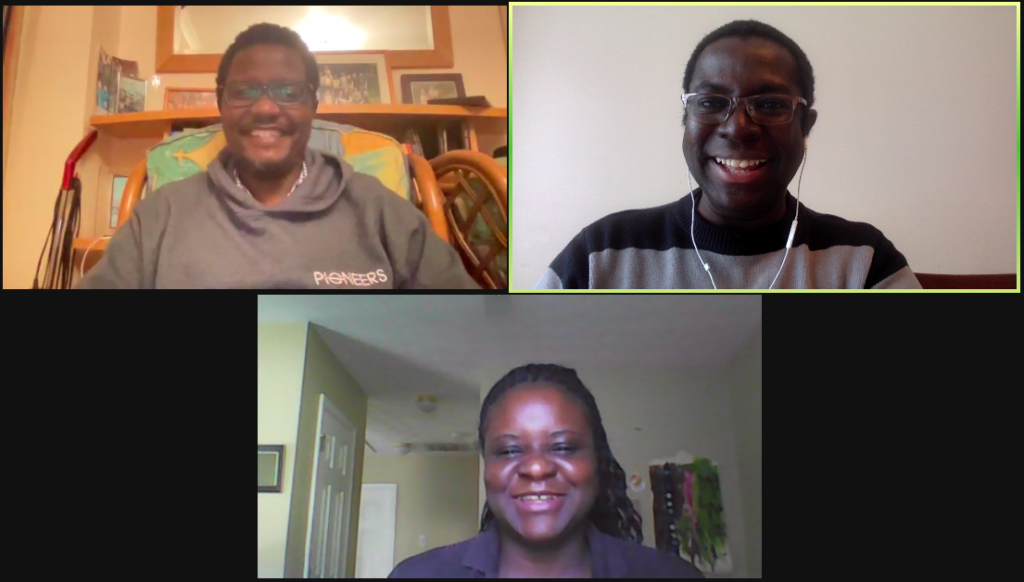
The all black ‘Africa to the Rest’ team of two writers and an editor on a Zoom call from Canada, the USA and England
UNDENIABLE PRESENT
It is good to know that Africa leads the world in something. There are churches that began in Africa and are in 198 countries now. The largest congregations in Europe are pastored by Africans, like Sunday Adelaja’s in Kieve, Ukraine. The most multinational congregation in the world—108 nationalities—was founded by and pastored by my good friend and mentor in Vancouver, Canada, Dr. Sam Owusu. I could give you a list of about 10 global mission organizations–including the Navigators, SIM, Langham Partners and SIL–currently led by Africans!
Why is all this important? For many reasons but three will suffice for now. First, black people have been part and parcel, even central, to the purpose and mission of God unlike others have tried to make us think. We are equally made in the image and likeness of God as anyone else. We ought to rejoice and while not bragging about ourselves, ‘make our boast in the LORD.’
Secondly, the Christian faith is authentically African. As one scholar put it, Christianity is a beggar looking for clothes in whatever culture it goes into. The fact that it was captured by Europeans and Americans and tailored as a tool of oppression of blacks in slavery, colonialism etc. is simply not right (not the authentic Christian faith) and doesn’t make the faith the preserve of the white man either.
Finally, the business world and other sectors in Africa that are trying to make a mark on the world stage could learn a thing or two from the African Church that leads the world in faith today, hands down.
THE FUTURE HAS COME
I come from a long and rich family history of black (hi)story tellers. My grandfather was an emeritus professor of ethnomusicology and my mother is a professor of history with a specialization in the slave trade. I feel privileged to take my turn to tell stories of African leadership, and in this particular case, leadership in faith, church and missiology.
The assassinated Congolese nationalist leader, luminary and first Prime Minister of the Democratic Republic of Congo, Patrice Lumumba, must be smiling in his grave that the day he prophesied is here: “The day will come when history will speak. But it will not be the history which will be taught in Brussels, Paris, Washington or the United Nations… Africa will write its own history and in both north and south it will be a history of glory and dignity.” The day has come!
For those of no faith and saying to themselves “who cares if Africa is the most Christian continent?” because we’re yet to see it tell on our socioeconomic indicators or the millennium development goals, just you wait. Works soon follow faith. Unless it’s not true faith; because faith without works is dead.
References
Johnson, Todd M., Gina A. Zurlo, Albert W. Hickman, and Peter F. Crossing. “Christianity 2018: More African Christians and Counting Martyrs.” International Bulletin of Mission Research 42, no. 1 (January 2018): 20. doi:10.1177/2396939317739833.
Merrills, A. (Ed.). (2004). Vandals, Romans and Berbers: New Perspectives on Late Antique North Africa (1st ed.). Routledge, 303. https://doi.org/10.4324/9781315235127
Oden, Thomas. 2007. How Africa Shaped the European Mind, Downers Grove: InterVarsity Press, p.71.
Perbi, Yaw & Sam Ngugi. 2021. Africa to the Rest: from mission field to mission force (again). Forthcoming. Xulon Press.

Black History Month | Why the Protests of 2020 Had a Sense Déjà Vu About Them
Here is the entire preface to the 2020 version of YouthPower! in Soweto for your enjoyment and edification. This book was first written 15 years ago upon a life-transforming visit to South Africa in 2005. The anti-racial protests in 2020 were like a 1976 déjà vu and inspired me to get this re-release going for today’s generation to remember and soldier on.
“It is better to die for an idea that will live,
than to live for an idea that will die.”
Steve Biko
The Definition of Black Consciousness, I Write What I Like, 1978
It is 2020. The pandemic year. The epochal events of this year, on both sides of the Atlantic, have had such significant parallels with the youth uprisings and protests in apartheid South Africa in 1976 that after procrastinating the republishing of this book for years I finally got the umph to do it.
“Police brutality.” “Systematic racism.” “Peaceful protests turned violent.” “We are dealing here not with a spontaneous outburst but with a deliberate attempt to bring about polarisation between whites and blacks.” “This government will not be intimidated and instructions have been given to maintain law and order at all costs.” Do any of these phrases and sentences sound familiar? Yet these are not from 2020; these are all 1976 words and phrases!
With the world slowed down, even locked down, we all had the time and bandwidth to take in the slow slaughter of an American young man, George Floyd, by those paid “to serve and protect” him. The aftermath of #BlackLivesMatter protests in the United States and around the world seemed like a coordinated tsunami. Perhaps no other year has there been more concerted protests against police brutality, systematic racism and no-nonsense towards anything or anyone glorifying an apartheid, segregationist, slavery or colonial past.
At a point, the confluence of 400th year anniversary of the first slave setting foot in America, a plague (COVID-19) and protests by the oppressed made me wonder if this was not a modern replay of the biblical Exodus, the liberation of Israel from Egypt.
Then just when things seemed to be settling down, #endSARS happened. Nigerian youth wouldn’t take the brutalization of their kith and kin anymore either. The well-organized air war (via social media) and on-the-ground protests did result in the dissolution of the notorious Special Anti-Robbery Squad (SARS) that had been unleashing untold mayhem on the Nigerian people, especially youth, for years. Some paid the ultimate price for daring to express their Youth Power! May they rest in peace. May their death bring life.
In all the standing up to, shouting out and marching against, the core demographic has of course been Young People. Youth Power! at work again; just as in 1976. In fact, my favourite picture of the 2020 protests in the U.S. so strongly correlates with a scene from 1976 although both events are seas and decades apart. On the streets of America in 2020 the youth held placards that read, “We are not our ancestors. We will fuck you up.” In Soweto, 44 years earlier, the youth had asserted similarly, “Our parents are prepared to suffer under the white man’s rule. They have been living for years under these laws and they have become immune to them. But we strongly refuse to swallow an education that is designed to make us slaves in the country of our birth.”
It seems to me that like the Boomer generation of 1976, the Millennial, Gen Y and Gen Z generations alive and kicking in 2020 have also taken seriously their mandate to leave the world better than they found it. “You see things; and you say “Why?” But I dream things that never were; and I say “Why not?”” [said a certain wise man]. I believe that was the Youth Power! mindset in 1976, replayed in 2020. Here’s to celebrating Youth Power! from Soweto to Minneapolis to Lagos to the ends of the earth.
POST SCRIPT
I am humbled by my very rich family history of Black story-telling. My grandfather, J.H. Kwabena Nketia, was an emeritus professor of ethnomusicology whose lifework was dedicated to documenting the songs and drum language of African peoples while my mother, Akosua Adoma Perbi, is a professor of history with a specialization in the slave trade, indigenous and trans-Atlantic. It seems my turn has come to continue a family tradition.
I can understand those in my generation who feel Black people are too yesterday-focused and are pushing for this month to be Black Future Month instead of Black History Month. A word of caution though: we must know our history well–although not dwell in the past–if we are to be and do today what will make our tomorrow better than yesterday. As a wise man once said, “Those who do not learn history are doomed to repeat it.” 2020 has proven that history tends to repeat itself.
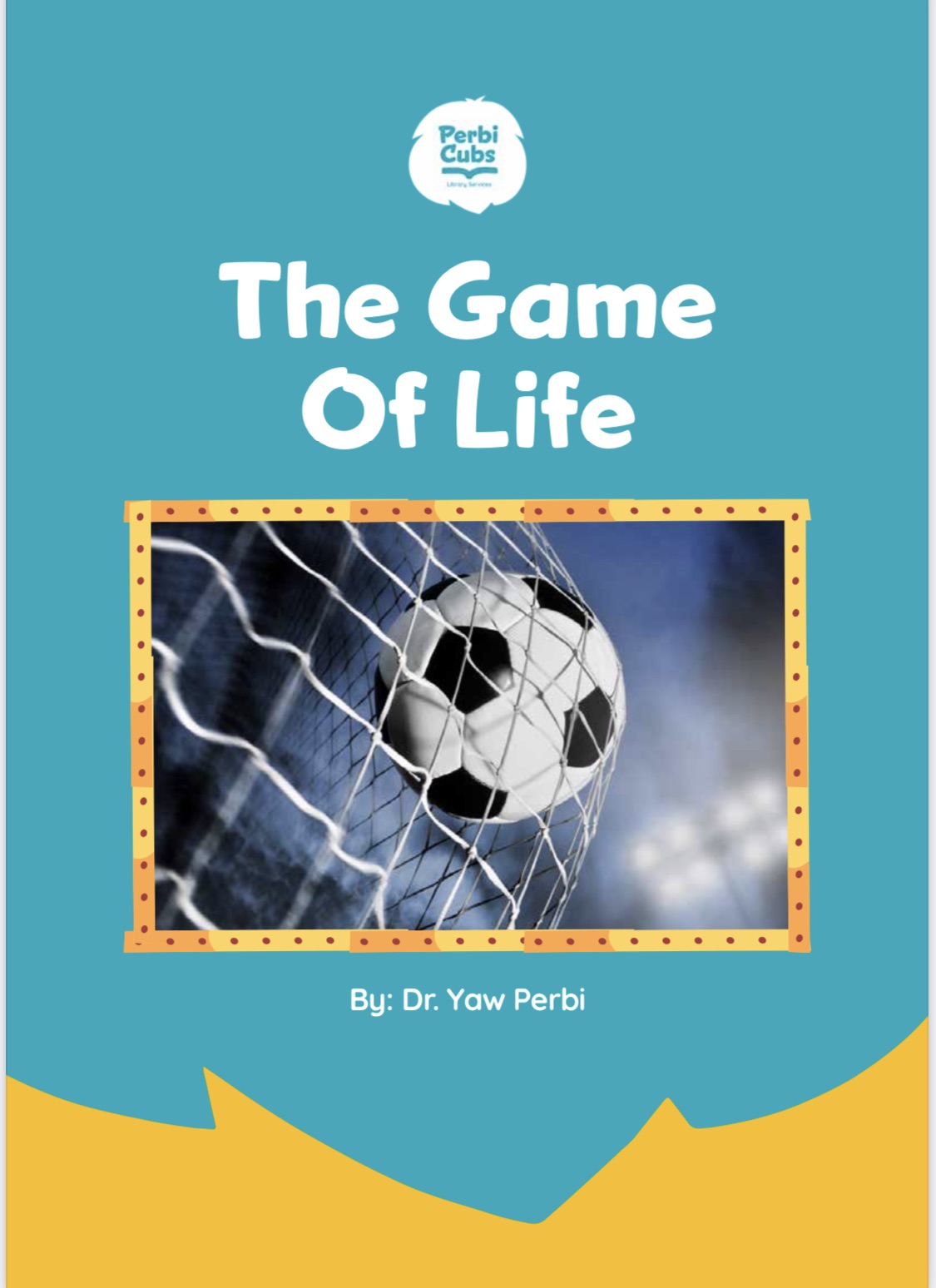
Life is Like Football | There’s No Winning Without Goals
The content of this blog was first published for patrons of Perbi Cubs Library Services. I feel compelled to largely reproduce it here (with tweaks) because of the alarming rate at which adults (including parents of these cubs) are feeling jaded by goal-setting. Perhaps like the greatest teacher who ever lived put it, our attitude should be like children in order to best learn.

Front cover of original book for Perbi Cubs
“GOOOOOAL!!!” It is not uncommon to hear the whole city or town where you live roar “GOOOOOAL!!!” This is when the favourite local or national football team scores a goal. Sometimes the whole city is dead silent, like a cemetary, because people are anxiously watching the game at the stadium or on television. Some even combine listening to radio commentary with watching television pictures at home! There are barely cars on the road or people in the street. You would think it is a ghost town if you were a visitor passing through until all over a sudden you are jolted by the loud roar “GOOOOOAL!!!”
There will be no point of the game of football without goals. And that is why there are goal posts with a net to capture the ball. The way to get ahead in the game is not all the activities of passing the ball, dribbling, somersaulting or even striking the ball hard and strong but getting the ball into the opponent’s goal posts. The goal of football is to win by scoring goals. Otherwise, all the activity does not mean any accomplishment!
And it doesn’t matter if you are not a football fan. The principle is the same, whatever your favourite game or sport is. Is it basketball, tennis, or swimming? What is the point of the game or sport? How do you keep score? Is there any way to determine who won without keeping score?
LIFE IS LIKE FOOTBALL
It is hard to imagine a game without goals yet many people play the game of life without any goals. No matter how important games or sports are, they are not as important as life itself. So if even football has goals to win how much more should we set goals in life to win at the game of life! And using the notion that Covid-19 derailed much of our goal-setting in 2020 so setting goals is of no use anymore is as ridiculous as saying because a certain football match was rained off (or postponed because there was an earthquake) there should be no more football in future. You must’ve heard before that extreme cases make bad laws.
You may also have heard it before that “if you fail to plan, you plan to fail.” There is nobody I know who plans to fail in life but if they fail to plan, they are automatically planning to fail. You may be very busy in life or working very hard but remember, activity does not mean accomplishment. And without goals, you cannot measure accomplishment.
WHAT A GOAL IS AND HOW WE FAIL
A goal is an aim; an end. A goal is the result to which your activities or effort is directed because activity is not necessarily synonymous with productivity. In a game like football, the goal is physical and obvious. In life, one has to be more intentional about what goals are. Mentor Maxwell calls a certain principle the Law of the Rubber Band: “growth stops when you lose the tension between where you are and where you could be.” So we all need stretch goals! For goals to grow you,“a goal should scare you a little, and excite you a lot,” says Joe Vitale. It is quite the art trying to gauge the best tension because either extreme–too easy or too hard a goal–and we loose the tension in our life’s rubber band (so-to-speak). We’re either too lose and useless or too taught and snap–useless too. We hit nothing when we don’t get the tension right. The goal should stretch but not break us. More about this in my next blog.
The other thing I’ve learnt recently is the best chance of meeting a goal is to set it in line with your personality type (take the DISC personality assessment now if you haven’t). While the high I (sanguine) might be motivated by making a game of goal-setting and rewarding themselves to hit their goals if the high D (choleric) finds a goal whose accomplishments puts her “in charge” (they love control) she will breeze through hers!
IN WHICH AREAS SHOULD WE SET GOALS?
We should set goals in every area of our lives. If we do then we can have all-round success. The greatest leader who ever lived, Jesus Christ, lived a holistically successful life in part because as a little boy, “Jesus grew in wisdom and stature, and in favor with God and man” (Luke 2:52). So we too must set goals in:
-“wisdom” (mental goals)
-“stature” (physical goals)
-“favour” with God (spiritual goals)
-“favour” with man (social goals).
Mental (academic) goals: These are learning goals. A good example of a mental goal may be to pursue a Master’s in business this year .
Physical goals: These are health and wealth goals. A good example of a physical goal may be to eat a fruit everyday this year or to exercise 30 minutes a day at least thrice every week.
Spiritual goals: These have to do with your relationship with God. A good example of a spiritual goal may be to read your Bible and pray everyday.
Social goals: These are about relating to people. A good example could be to institute date nights with your spouse or check on your ageing parents each week.
GOALS MUST BE S.M.A.R.T.
Can you imagine if the goal posts in a game of football weren’t clear? Can you imagine if they could be anywhere on the park at anytime? Also can you imagine if you had no idea how much time you had in the game to score goals and win? Just when you think you have 30 minutes the whistle goes to your surprise within two minutes?
In the same way, the more detailed and sure the goals you set in life are, the better. For us to be able to hit our goals in life, these goals must be S.M.A.R.T. This means they goals should be:
–SPECIFIC: Don’t just set a physical goal like “I want to be healthy.” Be specific by saying, “I will eat fruits to be healthy.”
–MEASURABLE: How many fruits? A bunch of bananas or a dozen oranges? So to make the goal measurable say, “I will eat a bunch of bananas or two dozen oranges to be healthy.”
–ATTAINABLE: The goal should be something you can accomplish. It must be reasonable and realistic. Eating a whole bunch of bananas or two dozen oranges everyday isn’t reasonable. To make your goal attainable, say, for example, “I will eat one banana or one orange to be healthy.”
–RELEVANT: No one should set goals that do not add value to their lives. So ask yourself if this goal adds real value to your life. Is it relevant to be healthy by eating a banana or orange? Yes indeed! This one is a no brainer.
–TIME-BOUND: You must determine if this goal is daily, weekly, monthly, yearly, in five year’s time etc. So to complete making your physical goal Time-bound, you could say, “This year, I will eat one banana or one orange everyday to be healthy.”
LET’S GO LET’S GO!
So! Life is like football. In order to win, you’ve got to have clear goal posts and score goals! Set your goal posts now by setting S.M.A.R.T. goals for the year, quarter, month, week and even today. Score your goals and win in life. That’s the path to success. And yes, you are free to also roar “GOOOOOAL!!!” when you hit your goals too. “GOOOOOAL!!!” Life is like football. You’ve got to have goals to win it.
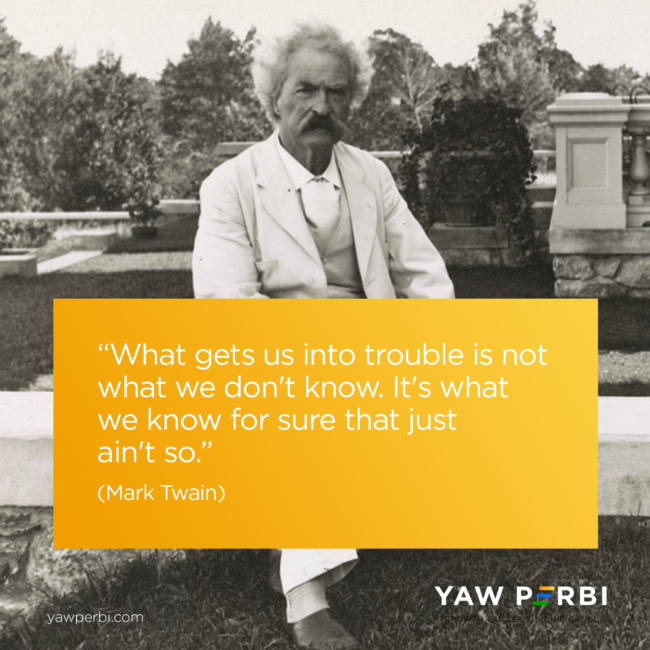
A Way to Prevent Heartbreak: Clarify Expectations
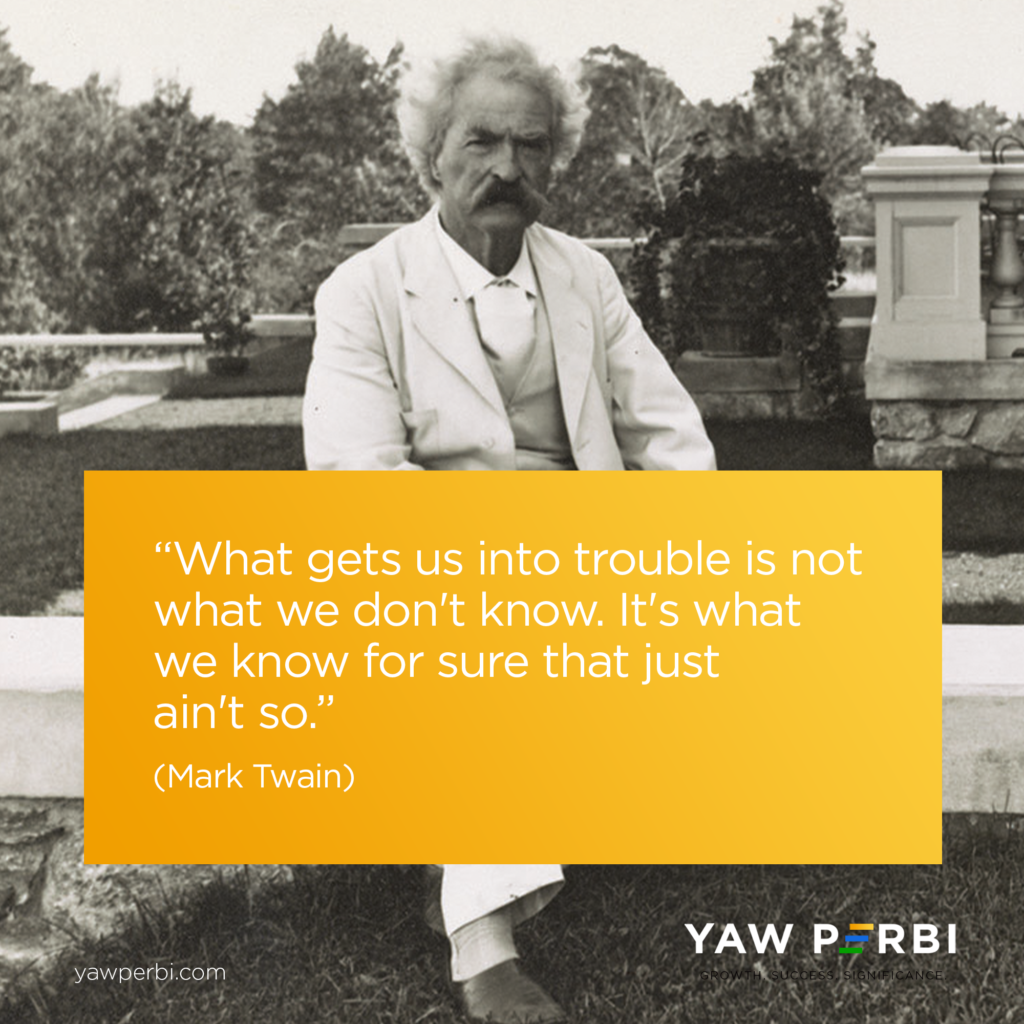
While what you don’t know may kill you; what you think you know but really don’t may kill you faster!
I have wanted to talk about this for months–how to prevent unnecessary hurt from unmet expectations–but last week an incident happened with one of my associates that really catalyzed me to share this urgently. So let’s talk about unmet expectations.
Whether it’s between spouses, parent and child, boss and workers or even among co-workers, family folk and church members, this is quite a common occurrence. This is particularly so African, Chinese, Japanese and Korean cultures that employ indirect communication. If you’re like me, you’ve probably been hurt before by unmet expectations. In fact, sometimes we don’t even realize we had an expectation until it was not met!
Mark Twain once said, “What gets us into trouble is not what we don’t know. It’s what we know for sure that just ain’t so.” We tend to have expectations that are unconscious, unrealistic, unspoken and unagreed upon. Let me share how you can flip these four things around and protect your heart against heartbreaks from unmet expectations. I owe this life-saving lesson from my New Yorkan mentors, Pete and Geri Scazzero.s
THE MILLION DOLLAR QUESTION
How do you know your expectations are valid or not? As hard-to-take as this may seem, when the expectation is unconscious it is invalid. In fact, if even we don’t even know we have them until we are disappointed how on earth is the other person supposed to know and meet it? When it is unrealistic it is invalid as well. Even if it is reasonable and we are conscious of it but it has not been articulated, it is still invalid. The common lame excuse we tend to give is, “Oh, but they should know?!”
In the event that our expectations meet all the above three criteria–conscious, realistic, spoken–but the other party has not agreed to them, they are still invalid. While this may seem very Western, I have learnt as an African-Canadian that it is never wise to assume agreement!
Of course, important caveats include marriage (where the vows already spoken have created certain clear expectations like fidelity), parent-child relationships (expectation of chores) and employer-employee dynamics where expectations have been clearly laid out in contracts and policy and supposedly read and accented to. Even in these relationships with broad-stroke expectations, situations occur that demand clarifying expectations further.
WHAT TO DO TO FORESTALL HEARTBREAKS
To prevent heartbreaks from unmet expectations, ensure your expectations are:
(1) Conscious: I am aware of my expectation.
(2) Realistic: I have evidence to support that the expectation is reasonable in the sense that the other is able and willing.
(3) Spoken: I have expressed the expectation clearly.
(4) Agreed Upon: The other person has agreed to the expectation by saying “yes.”
I would highly recommend you take the Scazzero’s Emotionally Healthy Relationships course for a full meal and good skill-building in this area they call Stop Mind Reading and Clarifying Expectations.
WHAT TO DO WHEN HURT HAPPENS
In the event that hurt still happens from unmet expectations, valid or not, REFRAMING the painful experience is everything. As John Maxwell renders it in the Law of Pain, “good management of bad experiences can lead to growth.” Reframe the painful experience as follows (modified from a Maxwell process):
a) Define the problem –> The painful situation I need to process right now is…
b) Understand your emotion –> My feelings about this are…
c) Articulate the lesson –> My lessons in is this are…
d) Identify a desired change –> The changes I want to effect are…
e) Brainstorm numerous pathways –> The ways out are…
f) Receive others’ input –> What I’m learning from others is…
g) Implement a course of action –> My course of action is 1. Embrace the reality of pain 2. Learn my lesson(s) 3. Share my lessons 4. Change a. ______ b. ______ c. ______ d. _____.
CONCLUSION
You know what they say happens when you assume: you make an ass of u and me. An expectation is only valid when it is mutually agreed upon. Let’s do less heart damage by providing and demanding clear expectations of others. Let’s ensure in all our relationships that our expectations are conscious, realistic, articulated and agreed upon. And when things fall through the cracks and we feel the sting of pain from unmet expectations, let’s reframe the experience well so we can still grow and flourish.
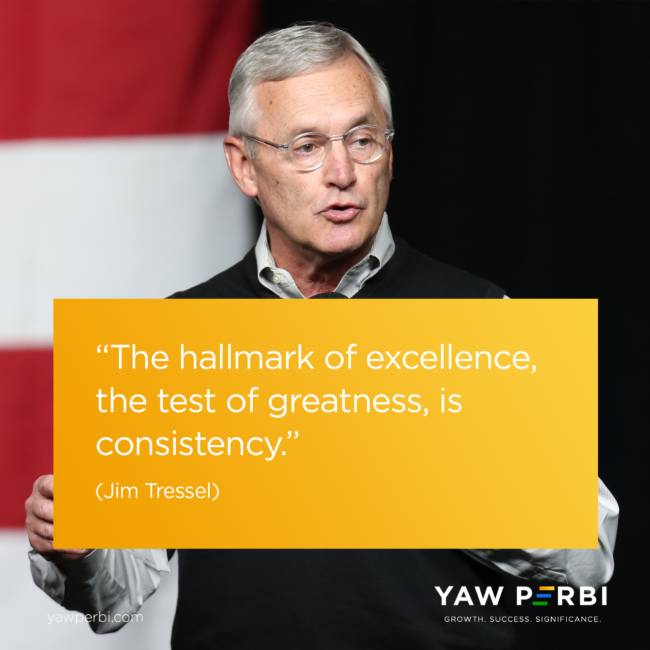
Successful People are Boring
In my late teens when I was introduced to the whole area of personal growth and success I started practising a number of things successful people do without necessarily knowing why. One of them was that they always took their receipts upon purchases. That became an adopted habit for about 10 years before I really got to understand why (that will be for a different day and blog).
One other thing that really fascinated me was the notion that successful people are predictable, consistent; or if you like, plain boring. This was not only in the sense of living a principle-centred life and holding unswervingly to their values but that they had fixed routines. You could literally ‘time them’ and ‘assassinate’ them because it was predictable where they would be, when, and what they would be doing literally every day of the week. That’s precisely what I mean by “successful people are boring.” Same. Same. Same. Same.
So I began to adopt strict routine in many areas of my life including consistently waking up at 4am to spend time in scripture and prayer, thinking, reading and writing. And I have done that consistently for over 25 years now. By the time the rest of the world wakes up and gets going, I would’ve had a 2-3 hour headstart and been über productive.
But now I understand why that consistency breeds success. This is in line with a number of fundamental, universal truths, three of which I would like to share here.
1. RIDING THE LAW OF CONSISTENCY
The Law of Consistency, which leads to growth and success states, “Motivation gets you going; discipline keeps you growing.” Anyone who gets a spark of inspiration or motivation overcomes the law of inertia momentarily but really how long does it last? I heard someone complaining about how transient the umph one gets from motivational talks is. A seasoned motivational speaker responded, rather tongue-in-cheek, “Of course! So are breakfast, lunch and supper!” Like meals, morsels of motivation also need to be taken in reasonable doses several times a day (and in a week) to jumpstart us but what really keeps the wheel of success turning always is discipline. Discipline is doing what we need to do even when we don’t feel like it. And that is the difference between those who succeed and those who don’t. E.M. Gray was spot on: “The successful person has the habit of doing the things that failures don’t like to do. The successful person doesn’t like to do them either, but his dislike is subordinated to the strength of his purpose.”
Disciple is hard; but what makes it more bearable is having a strong WHY, a strong end in mind. The other thing that makes it more doable is discovering your personality (eg. through the DISC behavioural assessment) and linking how you’re wired (what motivates you naturally) with the act you need/want to be consistent with. So for me, being a high D and loving to be in control, I’m greatly motivated to take charge of my morning knowing fully well that no one would be up to disturb me and I can get stuff I want to do done. You’ve got to a find a way, man, for success lies in our daily routine.
“We are what we repeatedly do. Excellence, then, is not an act, but a habit” is famously attributed to Aristotle. What he actually (originally) said was, “As it is not one swallow or a fine day that makes a spring, so it is not one day or a short time that makes a man blessed and happy.” The essence of both statements is the same. John Maxwell pulls no punches here: “You will never change your life until you change something you do daily.” What are you like E-V-E-R-Y-D-A-Y; what do you do E-V-E-R-Y-D-A-Y?
2. RIDING THE LAW OF MOMENTUM
People who are consistent with routine don’t waste precious time and energy figuring out every single day what to do with themselves. If you don’t have a menu, for example (my household does), you know by now how much time and energy can be consumed just by the question: what am I going to eat this afternoon? I have spent an hour on that useless exercise before!
Just like Newton’s first law of motion states, every object will remain at rest or in uniform motion in a straight line unless compelled to change its state by the action of an external force. What is true in Physics–and we tend to appreciate physical laws much more than the unseen laws of life–is the very thing that makes habits so powerful! “Once you pop, you can’t stop” says the Pringles advert. Success can become a habit; so can failure. In fact, Vince Lombardi once said, “once you learn to quit it becomes a habit.” Let the Law of Momentum
When John Maxwell launched 15 Invaluable Laws of Growth in Atlanta, I was there in person. A privileged few joined him for an intimate lunch session. I couldn’t believe the degree of his consistency when talked about his “daily five.” He said, “Everyday I read, I write, I think, I ask questions, I file.”
“Everyday, John?” we asked?
“EVERYDAY,” he responded.
On your birthday, John?
“EVERYDAY,” was his reply.
“On Christmas Day to0, sir?”
“EVERYDAY.”
3. HOW GENIUSES ARE MADE
It was my fellow Canadian, Malcom Gladwell, who first brought to my attention in his book Outliers, that 10,000 hours of practice of any skill makes one a genius. Most people, he said, would’ve done 10,000 of practice within 10 years. During an ongoing Growth Mastermind I was almost envious of the surgeon among us who says everyday he operates; e-v-e-r-y-d-a-y. Imagine his success in 10 years’ time when because of this consistency he has such gained ingenuity! What worthy thing are you doing everyday? Until you’ve done it consistently for 10 years, don’t give up on success just yet.
CONCLUSION
Something you are doing EVERYDAY is determining your future. Conversely, something you are not doing EVERYDAY is determining your future also. More often than not, motivation is overrated. Motivation gets you going but discipline keeps you going, keeps you growing. What will you say is your single most consistent practice (everyday) that has brought you where you are in life today? Please share.
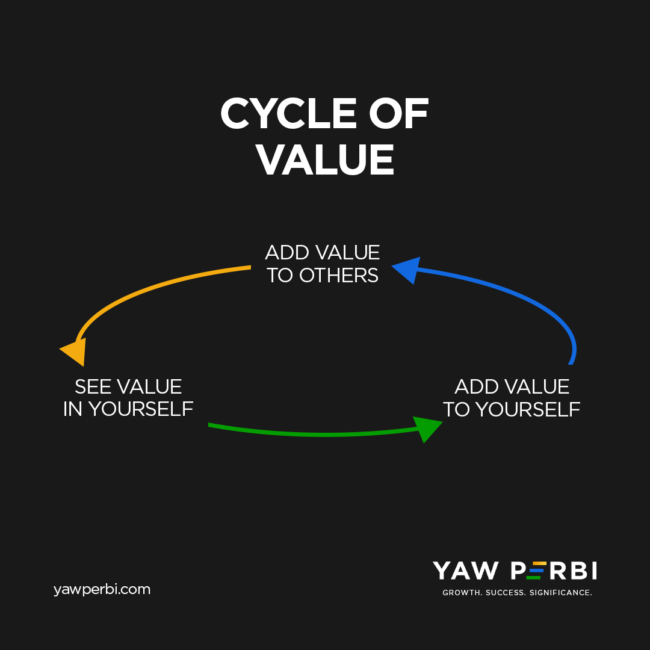
The Cycle of Value
Truly, truly, “you must see value in yourself to add value to yourself.” The author of The 15 Laws of Invaluable Growth calls this principle the Law of the Mirror. Author Denis Waitley put it another way: “Personal development is the belief that you are worth the effort, time, and energy needed to develop yourself.” Investment in your personal growth yields interest–not simple but compound interest–and it is a great deception to not significantly invest in yourself under the guise of ‘self-sacrifice’ for others when the real truth is that you do not see significant value in your own self to make that investment in you.
You are of immense value. This is not based on your net worth or network, salary or social status. It has nothing to do with your height or weight and whether or not you are photogenic and have a great social media following. You and I are of immense value simply because we are human, made in the image and likeness of the Great One. Theologians call this notion of being made in the image of God, imago Dei.
When as coaches we speak of adding value to your life, therefore, we are not implying you could be worth more or less as a human being but that you could develop the innate gifts, passions, dreams and personality traits you have to maximise your potential and impact. Many people, sadly, do not realize they are of immense value and worth that investment. They run around all year, every day, adding value to others through the goods and services they produce as workers but don’t make the time or put aside the money to grow themselves. I repeat: it is a great deception to not significantly invest in yourself under the guise of ‘self-sacrifice’ for others when the real truth is that you do not see significant value in your own self to make that investment in you. Not all so-called ‘self-sacrifice’ is actually ‘noble.’ Yes, “you must see value in yourself to add value to yourself.”
CHICKEN OR EGG
So which one comes first? Seeing value in ourselves and so adding value to ourselves or adding value to ourselves first and then beginning to see value in ourselves? John Maxwell says, “It doesn’t matter which occurs first. One feeds the other. What matters is that the cycle of value starts.”
In addition, adding value to others, making a difference in their lives, has been documented to lift our own self-esteem. As Maxwell puts it succinctly, ‘It’s hard to feed bad about yourself when you’re doing something good for someone else.” Under normal circumstances, “adding value to others makes them value you more” also. In fact, another aspect of seeing and appreciating our own worth comes when we add value to others. Hence the value cycle below.
THE REAL CAP AND REAL KICKER
Herculian governments, Machiavellian bosses, helicopter parents (and the list goes on) can all put a ceiling on our potential but by far our own self esteem is the most significant lid on our potential! Psychiatrist and self-esteem expert Nathaniel Branden put it succinctly: “No factor is more important in people’s psychological development and motivation than the value judgments they make about themselves.” “It is the lid on your potential,” Maxwell chimes in. “If your desire is a 10 but your self-esteem is a 5, you’ll never perform at the level of a 10. You’ll perform as a 5 or lower. People are never able to outperform their self-image.”
And the real kicker is this: the value we place on ourselves is usually the value others place on us. “If you put small value on yourself,” again says Maxwell, “rest assured the world will not raise the price.” I remember being interviewed for the presidency of a Canadian charity and the board requesting that I move my family from one end of the country to the other (and don’t forget, Canada is the second widest country on earth!). I did not feel that was the best move, literally and figuratively, for my family, our God-given purpose in the city of Montreal and even for my vision of expanding the organization beyond where it had been limited to in 25 years. Knowing my value I said “No, thank you.” I politely but clearly and strongly said to the august board: “If this move is that important to you, then I’m not your man for the job.” Needless to say, they went along with my decision and I had the privilege of serving in the role for eight years.
When I mentioned on social media this notion of how others (and indeed life) will only treat us according to the value we place on ourselves, my childhood friend Samuel in Minnesota, USA reminded me of a classic Jessie B. Rittenhouse poem that succinctly captures this principle:
I bargained with Life for a penny,
And Life would pay no more,
However I begged at evening
When I counted my scanty store;
For Life is just an employer,
He gives you what you ask,
But once you have set the wages,
Why, you must bear the task.
I worked for a menial’s hire,
Only to learn, dismayed,
That any wage I had asked of Life,
Life would have paid.
SO WHAT’S YOUR WORTH?
Everyone needs to find the happy middle between being selfless (as if only other people count) and being selfish (as if nobody else counts). If you don’t like what you’re reaping in life then check what you’re sowing. Do you see in yourself the value the Creator does? Do you believe in that value enough to invest in yourself to see grow exponentially, flourish and bless others? For real, there’s a whole wide world waiting to be impacted by you but truly, truly, “you must see value in yourself to add value to yourself.”
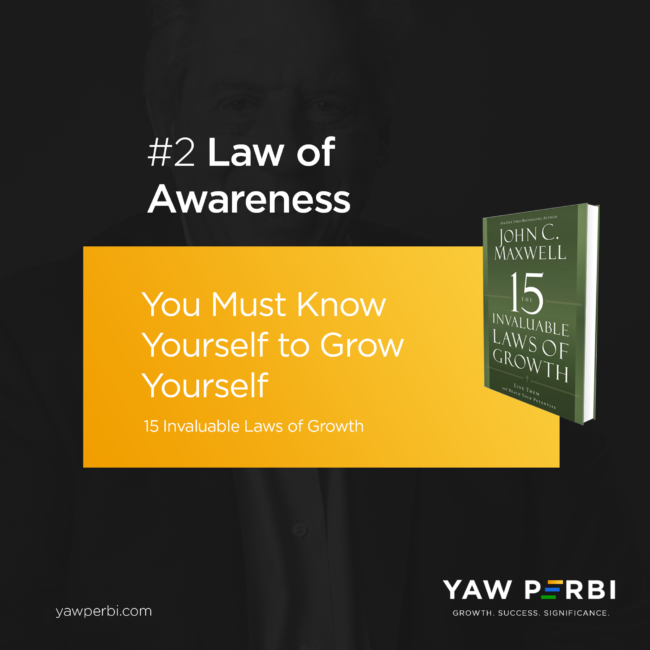
Four Pairs for Prosperity
There are just too many people stuck in a life determined for them twenty years earlier by an unaware and uninformed teenager obliged to choose a career course in high school or university. Yes, changing direction is a risk… but what if you don’t change? Which risk would you rather live with?
Do you like what you are doing now? What would you really like to do? As we delved into those soul-searching questions (and more) in exploring the Law of Awareness, the notion that you have to know yourself to grow yourself became crystal clear. “There is no point continuing to just do activities to fill my days,” said a U.S. Naval officer who has decided to suspend courses he was going to enrol in to now do a full and fresh audit of the direction of his life and examine his passions and gifts.
In the ensuing discussion a McNulty Prize laureate and serial entrepreneur shared how following her reflections at 40 she had just given up her Africa-wide regional role in a rich Europe-based NGO to start a new African impact investment venture with zero money! Why would anyone do that? Of course I also shared how I left medicine to pursue my passion for leadership development and Christian mission. It’s been more than a decade since and I have no regrets, none.
If a person sets out to run a mile, and three quarters of a mile ahead there is a cliff, should that person try to finish running the mile just because he started out to do so? As you ponder that question from the content of the 15 Laws of Growth mastermind group that all the people I’ve mentioned here are a part, I hope it becomes apparent how ridiculous it is to be bound to a trajectory determined twenty years earlier by an unaware and uninformed teenager obliged to choose a career course in high school or university. This is the time for true self-awareness and new growth. Yes, changing direction is a risk…but what if you don’t change? Which risk would you rather live with?
JACK WHERE ARE YOU?
Have you ever gone to a huge place, say a large mall of six floors, and wondered “what’s where and how do I get there?” Whenever I have, whether it’s in the huge malls of the USA, South Africa or the Philippines, I would hunt for a map of the place, typically mounted on each floor at vantage points. If you’ve used one of those before, the most striking marking and boldest text on it tends to be not the various potential destinations and routes but the sign that says, “YOU ARE HERE.” That is a huge inadvertent lesson in self-awareness. A big gap in my personal growth has been overemphasising goal-setting (where I want to go) and often overlooking self-awareness (where I am right now). I’ve almost always looked at the map and been nearly obsessed over where I want to go and not taking enough note of “YOU ARE HERE.” Yet in the words of Denis Waitely, “No one can produce great things if he is not thoroughly sincere in dealing with himself.”
The following are at least four pairs of things one should be aware of, first, and then align. Like a fork and knife, they should go together but often don’t. Yet unless they align, forget about the kind of exponential growth that leads to sustainable success.
1. WHAT YOU WANT & WHAT YOU’RE GOOD AT
What you dream of and/or desire must match with what you can do well. To be crazily successful you need to be doing what you’re good at so only entertain a dream in that direction. The key is to “discover your uniqueness; then discipline yourself to develop it” (Jim Sundberg). It is a curious observation from my mentor Dr. Maxwell, that “some people have an inherent ability to know know who they are and who they’re not. Others have to work hard to make those discoveries.” Poet and critic Samuel Johnson put it well, “Almost every man wastes part of his life in attempts to display qualities which he does not possess.” Are you still wasting time? No more! Get coached!
Although I realized a long time ago that my calling was leadership, communication and education, it took the significant crucible of a fatal road traffic accident to catalyze my resolve to move more fully into my purpose. It isn’t good enough to live out one’s purpose part-time because of a full-time job that pays the bills. When I coach, write, speak or train and make a difference in people’s lives I feel most alive. I feel “I was born for this.” I was! Claremont professor Mihaly Csikszentmihalyi, a pioneer in positive psychology, put it simply eons ago: “Find out what you are good at and what you like to do.”
2. WHAT DRIVES YOU & WHAT SATISFIES YOU
Many of the things that drive us are externally given or measured, like money, but these should align with what internally satisfies us as well. That is über powerful! Harvard professor Bill George lists things such as having power, a title, public recognition, social status, winning over others and monetary compensation as extrinsic motivators. Intrinsic motivations, on the contrary, says George, “are derived from your deepest inner desires, not the world’s adulation. They are the basis for your True North and are closely linked to your life story.” These include personal growth, satisfaction of doing a good job, helping others develop, finding meaning from efforts, being true to one’s beliefs and making a difference in the world.
Your sweet spot is the place where what drives you (extrinsic motivator) and what satisfies you (intrinsic motivator) align and synergistically combine with what you want (dream) and what you’re good at, for sure!
3. VALUES and PRIORITIES
Everyone has values, overtly or covertly; what we consider good and valuable. Unfortunately these are often violated by how we actually do life. As mentioned before it takes things like the accountability of a coach or mastermind group to gather the power to make the quantum leap from valuing something to re-prioritizing things in our lives to own it (action!). See here. When values and priorities converge, powerful things happen!
4. PERSONAL VALUES AND PRIORITIES & ORGANIZATIONAL VALUES AND PRIORITIES
The majority of people spend most of their waking hours at some workplace or the other, physical or virtual. The challenge is that, as Maxwell asserts, “if you and your employer are working at cross-purposes, success will be difficult to achieve.” Again, in an earlier blog on personal and corporate values, I was unequivocally clear: “I strongly advise individuals to make sure that their personal DNA aligns with the corporate DNA of whatever organization they work for/with (or seek to work for/with).”
SO! WHERE WERE WE?
First, find what you really want and align it with what you’re really good at! Then, align your extrinsic and intrinsic motivations. Thirdly, harness your values and priorities and finally make sure these personal values and priorities jive with your organization’s. Align these four pairs and you’re en route to a sustainably successful life, one of deep fulfilment and significance with no regrets. These are four pairs that must be aligned for prosperity but as you can tell, it all begins with a keen self-awareness.

American Shitocracy and African Shitholes
‘Shit hole’ status is not the preserve of any people group, state or nation. Seasons change. Kingdoms rise and fall with terrific and terrible leadership respectively. Great civilizations have come and gone. If Africa continues on a trajectory of principle-centred, values-based, effectual leadership and America continues on her trajectory of shit-based leadership for long enough the tables will turn!

“I’ll be watching because history is going to be made,” were Trump’s inspirational words to ginger his soon-to-be-desecrating supporters who forced their way into the Capitol to interrupt the democratic transfer of power. Photo credit: Roberto Schmidt/Agence France-Presse — Getty Images
Bit by bit we’ve seen the shroud of so-called American exceptionalism come apart. Rent piece by piece, she’s revealing her warts to a watching world, stuck at home. What she’s done well for over 200 years to conceal—and not wash her dirty linen in public either—a combination of democratized social media, a TRUMPeting emperor with no clothes and a plaguing pandemic have conspired to expose. Lynchings like George Floyd’s are not new; it’s the handy smart phones and social media apps at the finger tips that capture and broadcast these which are.
Last Wednesday’s attempted coup d’état at the U.S. Capitol was the nadir of the last four years’ declivitous decline from apparent democracy to real shitocracy. I am not one to use the s-word; I’m only playing on the words of the supposed most powerful man on earth. Many aspects of the attack on the ‘people’s house’ by armed rioters a.k.a. domestic terrorists dropped my jaws (and kept my mouth agape) but the most shocking was literally the filthiest of all: desecration of the House with faecal matter, well-known in ‘shit hole countries’ as ‘shit bombing’. Just when you thought America could sink no further.
The shit-hole-country-conferring president of the Divided States of America inspired this group of shit bombers.

Thieves of democracy scaling walls like thieves do, as in the words of the New York Times, “largely unimpeded by police as they stormed the Capitol.” Photo credit: Jason Andrew for The New York Times
Let me tell America(ns) how we, Africans, got shit holed: LEADERSHIP! A long string of shit hole leadership like you’ve now gotten in the Black House (it’s only painted white and so-called but we know it was built by Blacks). If Africa continues on a trajectory of principle-centred, values-based, effectual leadership and America continues on her trajectory of shit-based leadership for long enough the tables will turn! You know how I know? Because “everything rises and falls on leadership,” E-V-E-R-Y-T-H-I-NG, shit and all. And that is a principle; a timeless, fundamental law of the universe that is no respecter of persons: red or yellow, black or white.
‘Shit hole’ status is not the preserve of any people group, state or nation. Seasons change. Kingdoms rise and fall with terrible and terrific leadership respectively. Great civilizations have come and gone. And I mean, greater civilizations than America, and that dominated for much longer than the toddling USA. America could be tomorrow what we call “ancient Egypt” today. Or even the beggarly Greece today, yes, Socrates, Aristotle and Plato’s Greece of yestercentury. In the last decade Portugal found itself borrowing money from her former colony Angola.
Meanwhile, my Ghanaian-Canadian children today wonder what is so ‘Great’ about Britain. Brexit? As for America, in the last few weeks we’ve spent more time at our Family Altar repeatedly praying for political peace in America and for the eradication of ignorance and disease (COVID-19) there than we have prayed about any of these for Africa!
Now to my fellow Africans. In the light of how backward America has proven to be recently, perhaps it is beginning to dawn on you that we may not be as backward as they (and some others) would like us to think! After all, when our ancestors were building pyramids their European forebears were but Barbarians (note: barbarian or barbaric is still not a fluttering word in the English dictionary today).
At the very time when there were prolonged pre, para and post electoral tensions in America, even with a sitting president refusing to concede but rather raising false alarms of a rigged election, Ghana figuratively and literally came from behind to vote, certify results within 72 hours and has already sworn-in a new president (an occasion the American president nominated American officials to attend). Now, look who’s shit hole!
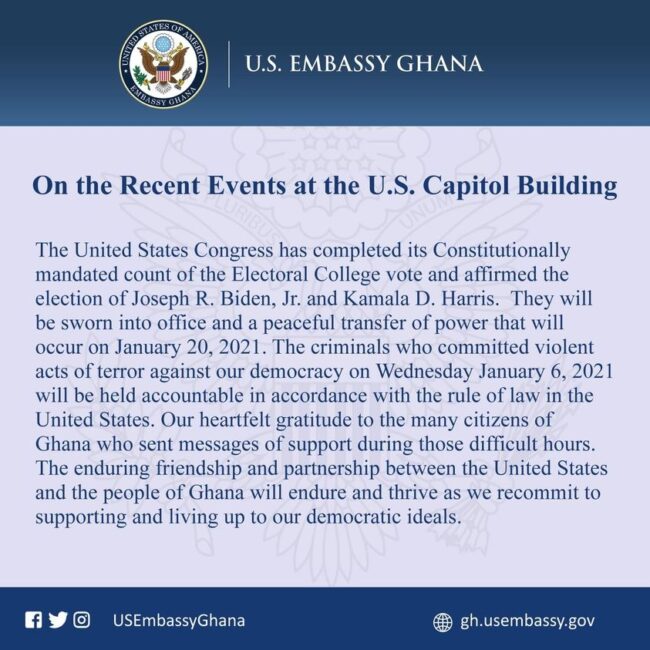
No one would’ve imagine such a notice from the U.S. Embassy in Ghana four years ago! “Our heartfelt gratitude to the many citizens of Ghana who sent messages of support during those difficult hours”? Wow!
Which is worse: being called shit hole or being shitty? It was America’s shitocracy that christened African countries as shit hole. But neither shitocracy nor shit hole is good enough for Africa or America. I have substantial interest in the prosperity of both peoples on both sides of the Atlantic–and so does the whole world stand to benefit. So upward and onward with godly, principle-centred, values-based, effectual leadership for the benefit of our peoples and to the glory of God. No more shit–shit holing, shit hollering or shit bombing. We were made for so much more than this.
Africa! America! African-Americans, arise, clean up and shine! Let our worst years be the last four; and our worst days among the last four too.
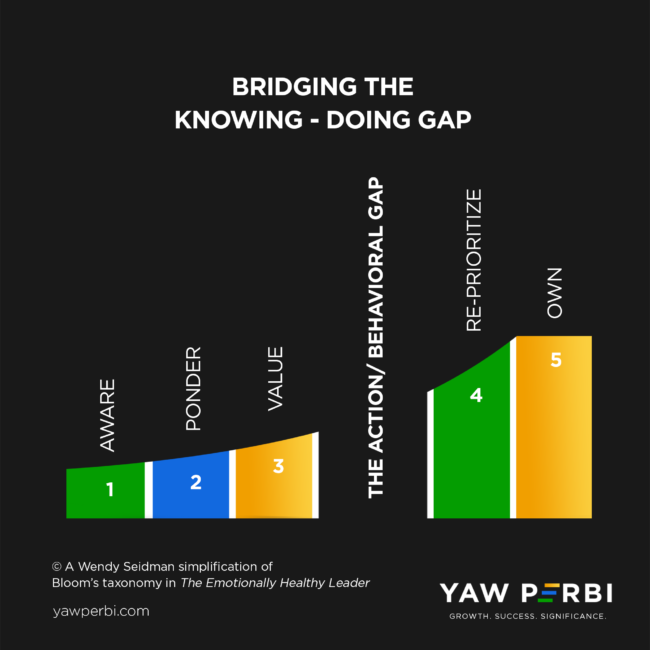
A Sure Way to Close the Widest Gap in the World
By now you should know for yourself that the widest gap in life or in the world is between knowing and doing. If we all put into practice every right thing we knew, our lives would be remarkably different, incredibly successful. Here’s why we don’t and what to do about it, especially in this season of ‘new year resolutions.’
What do a Microbiology PhD, Obstetrician, Civil & Environmental Engineer, Hotel HR Manager in Ghana, Marketing Executive at Ogilvy, Dentist in the United States, Consultant at Accenture, CEO of a Savings & Loans scheme in Uganda and a U.S. military personnel stationed in Italy have in common? And on top of all that, situated in three different continents on the surface not much; except these were all in the same room at the start of 2021 with one desire and purpose: to grow.
There’s no gainsaying that the dozen people constituting the first 15 Invaluable Laws of Growth mastermind group with YAW PERBI in 2021 know a lot. The combined expertise in the room is astounding; it is an honour just to be seated at the table with a leader with 18 years experience at Ghana’s Food & Drugs Authority and the rest of the crew.
We had all chosen to invest the time and money to be part of this mastermind because as Maxwell’s first Law of Growth makes plain, what he calls The Law of Intentionality, “Growth Doesn’t Just Happen.” In fact, “growth is [about] the only guarantee that tomorrow is going to get better”; that 2021 will be better than 2020. Although all these amazing professionals had a hint of this fundamental law of the universe, hence signing onto the mastermind group in the first place, by the end of the first 90-minute session this was so abundantly clear and weighing on us that my personal ‘statement of the day’ came from the FDA leader: “Growth is hard work.” Yes it is! And I’m so proud of these folks who are making an intentional, informed, sustained choice to grow themselves into success and significance!
SECRET TO CLOSING THE GAP
Perhaps no generation knows more, or at least has access to more knowledge in all sorts of media, than this current one. Yet by now you should know for yourself that the widest gap in life or in the world is between knowing and doing. If we all put into practice every right thing we knew, our lives would be remarkably different, incredibly successful. Richard Biggs says “the greatest gap in life is the one between knowing and doing,” a statement similar to John Maxwell’s, who puts it this way: “the greatest gap in the world is the gap between knowing and doing.”
While these already very knowledgeable folks will be even adding further to their professional knowledge vital new information about the Laws of Growth, what will catalyze and even guarantee their change and growth isn’t the HEAD stuff per se. Of course that’s where it begins but the problem is when it ends there, which is more often than note the case.
Considering the above Wendy Seidman simplification of Bloom’s famous taxonomy, the secret to the mastermind participants moving from abundant knowledge to abundant living by doing what they know they ought to do to grow will be as follows (this is the same for you if you intend to finally do something with all you already know you ought to do):
1. AWARE: This is a HEAD thing. Many of us begin from not even knowing what we don’t know, right? “Oh! So there are Laws?” ”Ei! And there are Growth Laws in particular?” right? How can people plan to do what they don’t even know in the first place?
2. PONDER: All of us are going to have ample time in between meetings to THINK about these laws but especially when we meet, as the facilitator I’ll be applying the major tool of a coach–questions, questions questions–to help clarify and deepen the pondering process. I say understanding is the product of pondering. Many times we don’t do because we don’t understand. But thus far, this is all still a HEAD thing.
3. VALUE: When folks actually begin to value that thing they’ve become aware of and have pondered, this is when things have travelled from the head down to the heart. It’s now a HEART thing. “Hmmmm… it must be important.” “Hmmm it may be a good thing oo…” A value is what you value, right?
I tell you, if “the greatest gap in the world is the gap between knowing and doing,” then the longest distance in the world might be between the head and the heart! Anatomically it’s only a few centimetres apart but metaphorically, that’s another matter. Yet it is necessary to value a thing, and feel it to move us to do anything. Do you see the word ‘motion’ in emotion?
Yet after our new awareness and pondering have dropped into the heart , there’s still a GAP—nothing changes in our action or behaviour, yet. It’s still not a HAND thing (action or behaviour) until usually with the help of accountable relationships (like coaches and mastermind compatriots) you gain the quantum energy to scale the action/behavioural gap to the land of re-prioritization. This is the longest and deepest gulf in the world, contributing the most to the gap between knowing and doing.
4. RE-PRIORITIZE: When you re-prioritize, you actually re-organize yourself, move others and things around you to make that new pondered and valued awareness actionable! Until you have re-prioritized, usually evident in the commitment of time, money (and other resources) and energy/effort, nothing changes.
5. OWN: I can give you an example of an area in which this entire process from awareness to ownership happened in my own life. It took me about six years to finally re-prioritize and start taking a proper weekly sabbath (not just a day off; to really stop all my work, rest, contemplate on God, delight in Him and his gifts). I can assure you that if I had a consistent, formal coach or mastermind group I was accountable to, it wouldn’t have taken me six years to make the quantum leap I needed to.
CONCLUSION
After seeing all these long distances and deep gulfs, can you understand why doing what we know is so hard. Come to think of it, who climbs the highest peaks in the world alone? You need a buddy if you’re to make it! That’s why this 15 Laws of Growth mastermind is a blessing! As co-travellers, we’ll all be AWARE of the same laws, PONDER these things (especially through the clarifying questions we’ll all be responding to), we will be expressing what we VALUE to each other’s hearing … and here’s the trick: we are there to encourage each other and hold each other accountable to make the leap to the other side of RE-PRIORITIZING and OWNING our growth and success.
Already, within the first 24 hours of the start of the mastermind, with everyone’s consent we formed a WhatsApp group through which we keep informing and reminding, pondering, valuing, and holding one another accountable to re-prioritize and own our growth journey to success over the next 60 days.
A sure way to close the widest gap in the world is accountable relationships to make the leap from merely valuing new knowing to re-prioritizing things in our lives towards new doing. So now you are aware why we generally don’t do what we know we should or even say we would–and what to do about it–especially in this season of ‘new year resolutions.’ Happy new year!
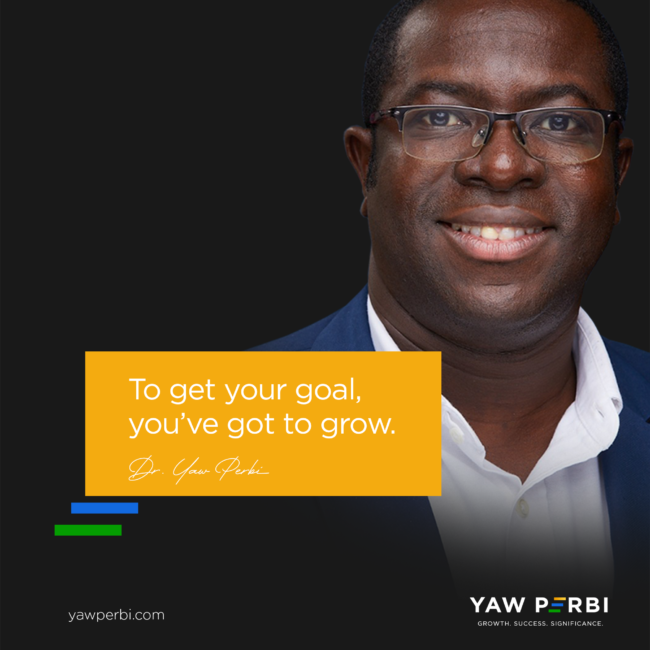
TO GOAL OR GROW? That is the question!
This is so counterintuitive that I don’t beat myself too much for almost completely missing it earlier in my life. I’m glad I have clinched that now: to grow an enterprise, grow people; to hit your goals focus on growing yourself and on the growth process.
GROW ME
Like most people I know, I love the word potential. Potential is the difference between who/where you are now and who/where you could be. Success, then, would be getting to who/where you could be. Being a go(al)-getter, one of the biggest mistakes I’ve made in life has been to keep the target or goal so much in mind and trying to figure out various strategies and timelines to hit it but neglecting the most important thing and most important one: growth and me. John Maxwell puts it succinctly: “To reach your potential you must grow. And to grow, you must be highly intentional about it.”
No matter the systems and structures, tools and technologies, courses and cash one gathers to hit a goal, unless there is investment in the growth of the person(s) involved, the goal is unlikely to happen. To achieve a goal, invest in growth of those the fulfillment of the goal depends on. To grow an enterprise, grow people.
Try something else in the new year: keep the goal in mind but focus on you (or whoever it depends on) and focus on a growth process. Let’s see what happens. I take my mentor John’s counsel seriously: “If you focus on goals, you may hit the goals, but that doesn’t guarantee growth. If you focus on growth, you will grow and always hit growth.” This is how to win, 100% of the time!
Here’s a paragraph from John’s 15 Invaluable Laws of Growth, which at the start of the new year I take a selected few through, that makes the point:
“If you want to discover your purpose, you need to grow in self-awareness. To become a better human being, you need to grow in character. To advance in your career, you need to grow in your skills. To be a better spouse or parent, you need to grow in relationships. To reach your financial goals, you need to grow in your knowledge about how money works. To enrich your soul, you need to grow spiritually.”
In similar fashion, as James Allen wrote in his classic As a Man Thinketh, “People are anxious to improve their circumstances but are unwilling to improve themselves; they therefore remain bound.” Get it? To get your goal you’ve got to grow.
GO WITH ME
Now, assuming you’ve agreed with me that you’ve got to grow to succeed, then the next logical question (in all probability) is how do I grow?. Well, you need to know the principles (laws) governing growth and have a plan and process to grow. Key to this plan and process is, again, people.
They say “we become the combined average of the five people we hang around the most.” Take a quick inventory right now. Depending on who your average five turn out to be, you must be pretty excited or pretty disappointed right now.
Apart from becoming a growing person yourself (towards your goals), you also need growth people, to stimulate, guide and guard your growth. This may be in the form of an accountability friend, a supportive spouse, an executive coach, or a small group like a mastermind.
I like to say that where two or three come together ‘magic’ happens. It is true. No matter how brilliant the ideas I think I have are, somehow when I meet with a group of people to discuss it the final outcome is much much better than my best ideas. It goes without saying that all of us are better than any one of us, any day! That is what Napoleon Hill discovered (mentioned in his 1925 book) and called a” mastermind”–when two people come together they create a third, invisible mind which is greater than the sum of the other two.
So for ideation, encouragement and accountability, everyone needs someone to come alongside them in their growth journey towards goal-getting.
CONCLUSION
To goal or to grow? That is the question. This is so counterintuitive that I don’t beat myself too much for almost completely missing it earlier in my life. I’m glad I have clinched that now: to hit your goals focus on growing yourself and on the growth process. Even if you don’t hit your goal, you will hit your growth.
Be goal-bound (as in, headed towards your goal) not situation-bound (as in, stuck where you are) by being growth-bound (heading towards growth and sticking to growth). Set your goal alright but then focus on the growth it will take. To hit goals, focus on the person(s) involved and on the growth process. To get your goal you’ve got to grow. This is how to win 100% of the time!
Post Script
If you want to see if there’s still room for you in the 2020 Growth Mastermind click here.

